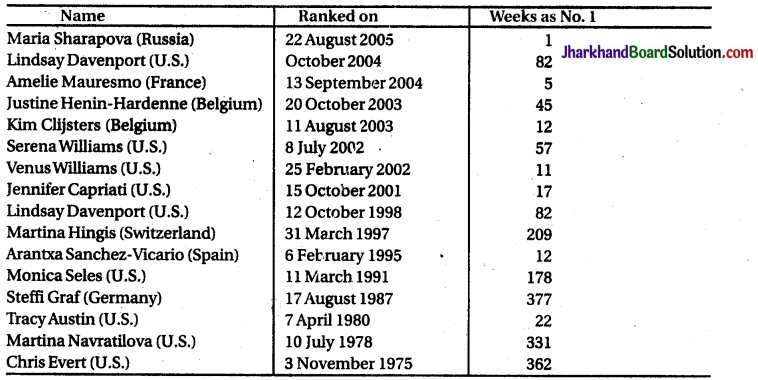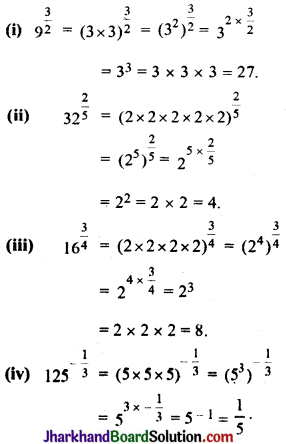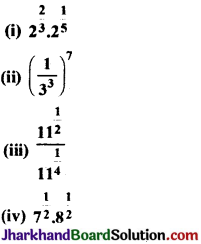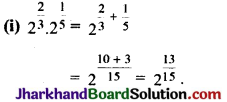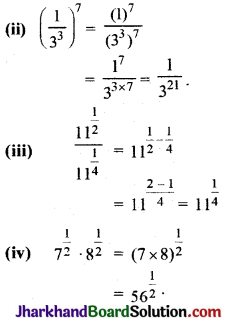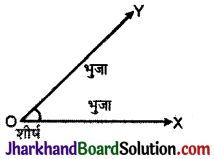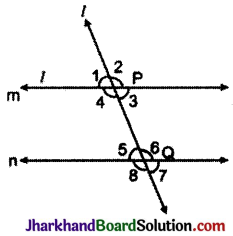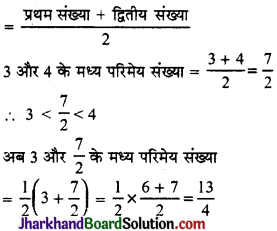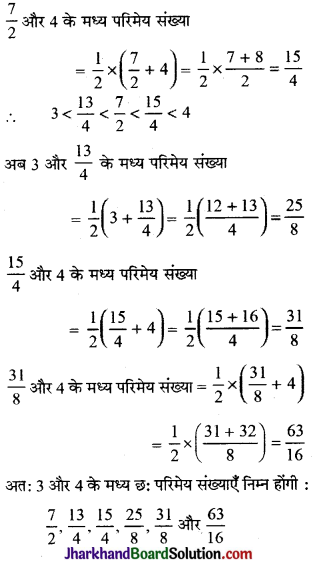Jharkhand Board JAC Class 9 English Solutions Beehive Chapter 2 The Sound of Music Textbook Exercise Questions and Answers.
JAC Board Class 9 English Solutions Beehive Chapter 2 The Sound of Music
JAC Class 9 English The Sound of Music Textbook Questions and Answers
Part – I
Evelyn Glennie Listens to Sound without Hearing It (by Deborah Cowley)
(एवलिन ग्लेनी ध्वनि को बिना सुने ही ध्यान से सुनती है)
Thinking About the Text
I. Answer these questions in a few words or a couple of sentences each:
निम्नलिखित प्रत्येक प्रश्न का उत्तर कुछ शब्दों या एक-दो वाक्यों में दीजिए :
Question 1.
How old was Evelyn when she went to the Royal Academy of Music?
एवलिन की क्या आयु थी जब वह रॉयल अकादमी ऑव म्यूज़िक में गई ?
Answer:
Evelyn was only seventeen years old when she went to the Royal Academy of Music.
एवलिन केवल सत्रह वर्ष की थी जब वह रॉयल अकादमी ऑव म्यूज़िक में गई ।

Question 2.
When was her deafness first noticed ? When was it confirmed ?
उसके बहरेपन का पहली बार कब पता चला ? उसकी पुष्टि कब हुई ?
Answer:
Evelyn’s deafness was first noticed by her mother when she was eight years old. When she was eleven years old, it was confirmed by a specialist. He said that her hearing was severely damaged.
एवलिन के बहरेपन का पहली बार उसकी माँ को पता चला जब वह आठ वर्ष की थी । जब वह ग्यारह वर्ष की थी तब एक विशेषज्ञ ने इसकी पुष्टि की। उसने बताया कि उसकी श्रवण शक्ति बुरी तरह से नष्ट हो गयी थी।
II. Answer each of these questions in a short paragraph (about 30. words) :
निम्नलिखित प्रत्येक प्रश्न का उत्तर एक छोटे अनुच्छेद (लगभग 30 शब्दों) में दीजिए :
Question 1.
Who helped her to continue with music ? What did he do and say ?
संगीत को जारी रखने में उसकी सहायता किसने की ? उसने क्या किया और क्या कहा ?
Answer:
Ron Forbes, a percussionist helped Evelyn to continue with music. He played two large drums to different notes. Then he asked Evelyn to sense the music in some other way. He asked her not to try to listen it through ears. Evelyn felt the vibrations of music in her parts of body.
तालवाद्यवादक रॉन ‘फोर्ब्स ने एवलिन को संगीत को जारी रखने में मदद की । उसने दो बड़े ढोलों को अलग-अलग स्वरों में बजाया । तत्पश्चात उसने एवलिन से संगीत को किसी अन्य तरीके से महसूस करने के लिए कहा । उसने उससे कहा कि वह संगीत को कानों से सुनने की कोशिश न करे । एवलिन ने संगीत के कम्पन को अपने शरीर के अंगों में महसूस किया ।
Question 2.
Name the various places and causes for which Evelyn performs.
उन विभिन्न स्थानों एवं कारणों के नाम बतायें जिनके लिए एवलिन कार्य करती है ।
Answer:
Evelyn performs at regular music concerts. She also gives concerts in prisons and hospitals without any charge. She takes classes for young musicians. She performs music in many other countries also.
एवलिन नियमित संगीतशालाओं के लिए वादन करती है । वह कारागारों और अस्पतालों में बिना शुल्क लिए संगीत प्रस्तुत करती है । वह युवा संगीतकारों की कक्षाएँ लेती है । वह कई अनेक देशों में भी संगीत की प्रस्तुतियाँ देती है।

III. Answer the question in two or three paragraphs ( 60 Words) :
इस प्रश्न का उत्तर लगभग दो या तीन पैराग्राफ में दीजिए ( 60 शब्दों में) :
Question 1.
How does Evelyn hear music?
एवलिन संगीत कैसे सुनती है?
Answer:
Evelyn could not hear music but she felt music by sensing the notes in different parts of her body. When Ron Forbes tuned two drums and asked Evelyn to sense the sound without using her ears, she used her upper and lower parts of body to feel the vibrations.
While performing on the wooden floor, she removed her shoes to feel the vibrations of music with her bare feet. She leaned against the drum to feel the resonances flowing into her body. These are some of the ways through which she heard music.
एवलिन संगीत को अपने कानों से नहीं सुनती थी लेकिन वह संगीत को अपने शरीर के विभिन्न अंगों के माध्यम से महसूस करती थी। जब रॉन फार्ब्स ने एक साथ दो ड्रम (ढोल) बजाए और उसने एवलिन से अपने कानों को प्रयोग किए बिना ही उनकी आवाज सुनने को कहा तब उसने संगीत के कम्पनों को महसूस करने के लिए शरीर के ऊपरी व निचले भाग का प्रयोग किया।
नंगे पैरों से संगीत के कम्पनों को महसूस करने के लिए लकड़ी के मंच पर जाने से पहले वह जूते उतार लेती थी। अपने शरीर में संगीत की ध्वनि के प्रवाह को महसूस करने के लिए वह ढोलों पर झुक जाती थी। ये ही कुछ ऐसे तरीके हैं जिनके माध्यम से वह संगीत सुन सकती थी।
Part – II
The Shehnai of Bismillah Khan
(बिस्मिल्ला खान की शहनाई ).
Thinking About the Text
I. Tick the right answer :
सही उत्तर पर निशान लगाइये
1. The (shehnai, pungi) was a ‘reeded noisemaker.’
2. (Bismillah Khan, A barber, Ali Bux) transformed the pungi into a shehnai.
3. Bismillah Khan’s paternal ancestors were (barbers, professional musicians)
4. Bismillah Khan learnt to play the Shehnai from (Ali Bux, Paigambar Bux, Ustad Faiyaz Khan).
5. Bismillah Khan’s first trip abroad was to (Afghanistan, U.S.A., Canada).
Answer:
(i) pungi
(ii) A barber
(iii) professional musicians
(iv) Ali Bux
(v) Afghanistan.
II. Find the words in the text which show Ustad Bismillah Khan’s feelings about the items listed below. Then mark tick (✓) in the correct column. Discuss your answers in class.
पाठ से वे शब्द चुनिये जो नीचे दी हुई सूची में शामिल बातों के बारे में उस्ताद बिस्मिल्ला खान की भावनाओं को प्रकट करते हैं । फिर सही स्तंभ में (✓) का चिह्न लगाएँ । अपने उत्तरों पर कक्षा में चर्चा कीजिए।
| Bismillah Khan’s feelings about | Positive | Negetive | Neutral |
1. teaching children music
2. the film world
3. migrating to the U.S.A.
4. playing at temples
5. getting the Bharat Ratna
6. the banks of the Ganga
Positive Negative Neutral
7. leaving Benaras and Dumraon | | | |
Answer:
1. “Teach your children music, this is Hindustan’s richest tradition.” (Positive)
2. “I just can’t come to terms with the artificiality and glamour of the film world. ” (Negative)
3. A student of his once wanted him to head a shehnai school in the USA….Khansaab asked him if he would be able to transport river Ganga as well. (Negative)
4. ………. a devout Muslim like him can very naturally play the shehnai every morning at Kashi Vishwanath temple. (Positive)
5……….his eyes glinting with rare happiness. (Positive)
6. (a) “While in Mumbai, I think of only Benaras and the holy Ganga……. (Positive)
(b) …………….. Ganga became his favourite haunts ……… the flowing waters of the Ganga inspired him to improvise and invent raagas. (Positive)
7. (a) Khansaab …….. is exceedingly fond of Benaras and Dumraon and they remain for him the most wonderful towns of the world.
(b) “While in Mumbai, I think of only Benaras ………. and while in Benaras, I miss the (Negative) unique mattha of Dumraon.”

III. ‘Answer the following questions in about 30 words each:
निम्नलिखित प्रत्येक प्रश्न का उत्तर लगभग 30 शब्दों में दीजिए :
Question 1.
Why did Aurangzeb ban the playing of the pungi ?
औरंगजेब ने पुंगी के बजाने पर प्रतिबन्ध क्यों लगाया ?
Answer:
Pungi was a reeded musical instrument. When played, the pungi produced a shrill and unpleasant sound. Aurangzeb did not like its harsh sound. So, he banned its playing in his palace.
पुंगी एक सरकण्डे (नरकुल) का बना संगीत वाद्ययंत्र था । जब इसे बजाया जाता था तो यह तीखी व अप्रिय आवाज उत्पन्न करती थी । औरंगजेब इसकी कर्कश आवाज को पसंद नहीं करता था । इसलिए उसने अपने महल में इसे बजाने पर रोक लगा दी ।
Question 2.
How is a shehnai different from a pungi ?
पुभी से शहनाई किस प्रकार भिन्न होती है ?
Answer:
Both the pungi and the shehnai are made from a hollow stem. But the shehnai is made from a broader and longer stem. The shehnai has seven holes. Unlike the pungi, the shehnai produces sweet and melodious music.
पुंगी और शहनाई दोनों ही खोखले तने से बनाई जाती हैं । लेकिन शहनाई चौड़े और बड़े तने से बनाई जाती है । शहनाई में सात छेद होते हैं। पुंगी के विपरीत शहनाई मधुर एवं कर्णप्रिय ( सुरीला ) संगीत प्रस्तुत करती है ।
Question 3.
Where was the shehnai played traditionally ? How did Bismillah Khan change this ?
पारम्परिक रूप से शहनाई कहाँ बजाई जाती थी ? बिस्मिल्ला खान ने इसे कैसे बदल दिया ?
Answer:
Traditionally, the shehnai was played in royal courts, temples and wedding ceremonies. Ustad Bismillah Khan produced new raagas that were earlier thought to be beyond the range of the shehnai. He raised its playing to classical level.
पारम्परिक रूप से शहनाई शाही राजदरबारों, मन्दिरों और विवाह समारोहों में बजाई जाती थी । उस्ताद बिस्मिल्ला खान ने नये राग प्रस्तुत किये जिनको पूर्व में शहनाई के क्षेत्र से परे समझा जाता था । वे इसे शास्त्रीय वाद्ययंत्रों के स्तर पर ले आये ।
Question 4.
When and how did Bismillah Khan get his big break ?
बिस्मिल्ला खान को बड़ा अनुकूल अवसर कैसे और कहाँ प्राप्त हुआ ?
Answer:
Bismillah Khan got his ‘big break’ in 1938 with the opening of the All India Radio in Lucknow. He got a chance to play the shehnai on radio. This brought him fame and new opportunities.
बिस्मिल्ला खान को अनुकूल अवसर 1938 में, लखनऊ में ऑल इण्डिया रेडियो की शुरूआत के साथ प्राप्त हुआ । उन्हें वहाँ शहनाई बजाने का अवसर मिला। इसने उनको प्रसिद्धि और नये अवसर प्रदान किये ।
Question 5.
Where did Bismillah Khan play the shehnai on 15 August 1947 ? Why was the event historic ?
15 अगस्त, 1947 को बिस्मिल्ला खान ने कहाँ शहनाई बजाई ? यह घटना ऐतिहासिक क्यों थी ?
Answer:
On August 15, 1947 Bismillah Khan played the ‘Raag Kafi’ on his shehnai from the Red Fort. India got independence on that day. He played the shehnai to mark the new beginning of India and celebrated the historic day of India’s independence with his fellow IndiAnswer:Thus, the event was a historic one.
15 अगस्त सन् 1947 को बिस्मिल्ला खान ने लाल किले से अपनी शहनाई से ‘राग काफी’ को बजाया । उस दिन भारत को स्वतन्त्रता प्राप्त हुई थी। उसने भारत की नई शुरूआत करने के लिए शहनाई बजाई और अपने सभी भारतीयों के साथ भारत की स्वतन्त्रता का ऐतिहासिक दिन मनाया । अतः यह घटना ऐतिहासिक थी ।

Question 6.
Why did Bismillah Khan refuse to start a shehnai school in the U.SA.?
बिस्मिल्ला खान ने यू. एस. ए. में शहनाई स्कूल चलाने से इंकार क्यों कर दिया ?
Answer:
Bismillah Khan visited many countries, but he always yearned to come back to India because he would not live away from Hindustan. He loved Benaras, its temples, the Ganga and the mattha of Dumraon. So, he refused to start a shehnai school in the U.S.A.
बिस्मिल्ला खान ने बहुत-से देशों की यात्रा की लेकिन उनकी हमेशा भारत वापिस आने की लालसा रहती थी । क्योंकि वह हिन्दुस्तान से अलग नहीं रह पाते थे । वे बनारस, इसके मन्दिरों, गंगा और डुमराँव की छाछ (मट्ठा) को प्यार करते थे । अतः उन्होंने यू. एस. ए. में शहनाई स्कूल चलाने से इंकार कर दिया ।
Question 7.
Find at least two instances in the text which tell you that Bismillah Khan loves India and Benaras. पाठ में से ऐसे कम से कम दो उदाहरण खोजिए जो आपको यह बताते हैं कि बिस्मिल्ला खान को भारत व बनारस से प्यार है ।
Answer:
Bismillah Khan loved India and Benaras very much. When the partition took place, he didn’t move to Pakistan. He even refused to head a shehnai school in the U.S.A.
बिस्मिल्ला खान भारत व बनारस से बहुत प्यार करते थे । जब विभाजन हुआ तो वह पाकिस्तान नहीं गये । राज्य अमरीका में भी शहनाई स्कूल का प्रमुख बनने से मना कर दिया। उन्होंने संयुक्त
Thinking About the Language
I. Look at these sentences : ( इन वाक्यों को देखिये :
- Evelyn was determined to live a normal life.
- Evelyn managed to conceal her growing deafness from friends and teachers.
उपर्युक्त वाक्यों में टेढ़ा (Italic) छपा. भाग ‘एवलिन किसके लिए कृतसंकल्प थी ?’ तथा ‘एवलिन क्या करने में सफल रही ?’ प्रश्नों का उत्तर देता है । वे (उत्तर) ‘to verb’ के साथ शुरू होते हैं (to live तथा to conceal)।
Complete the following sentences. Beginning with a to-verb, try to answer the questions in brackets:
निम्नलिखित वाक्यों को पूरा कीजिये । ‘to verb’ से शुरू करते हुए कोष्ठकों में दिये हुए प्रश्नों के उत्तर देने का प्रयास कीजिए :
1. The school sports team hopes ………… (What does it hope to do?)
2. We all want…………….. (What do we all want to do?)
3. They advised the hearing-impaired child’s mother. (What did they advise her to do?)
4. The authorities permitted us to …….. (What did the authorities permit us to do ?)
5. A musician decided to ……………. (What did the musician decide to do?)
Answer:
1. to win the match.
2. to succeed in our life.
3. to consult a specialist
4. to play in the school campus.
5. to play a new Raaga.
II. From the text on Bismillah Khan, find the words and phrases that match these definitions and write them down. The number of the paragraph where you will find the words/phrases has been given for you in brackets.
बिस्मिल्ला खान पर दी गयी पाठ्य वस्तु से उन शब्दों तथा वाक्यांशों को छाँटिये और लिखिये जो इन परिभाषाओं से मिलती हों । आपके लिए कोष्ठकों में उन अनुच्छेदों की संख्या दे दी गयी है जहाँ आपको ये शब्द / वाक्यांश मिलेंगे :
1. the home of royal people (1) ………………
2. the state of being alone (5) ………………
3. a part which is absolutely necessary (2) ………………
4. to do something not done before (5) ………………
5. without much effort (13) ………………
6. quickly and in large quantities (9) ……………… and ……….
Answer:
1. the royal residence
2. solitude
3. indispensable component
4. invent
5. effortlessly
6. thick and fast
III. Tick the right answer :
सही उत्तर पर (✓) लगाइये :
1. When something is revived, it — (remains dead/lives again)
2. When a government bans something, it wants it — (stopped/started)
3. When something is considered auspicious — (welcome it/avoid it)
4. When we take to something, we find it — (boring/interesting)
5. When you appreciate something, you — (find it good and useful/find it of no use)
6. When you replicate something, you do it — (for the first time/for the second time)
7. When we come to terms with something, it is — (still upsetting/no longer upsetting)
Answer:
1. lives again
2. stopped
3. welcome it
4. interesting
5. find it good and useful
6. for the second time
7. no longer upsetting

IV. Dictionary work: ( शब्दकोष – कार्य )
- The sound of the shehnai is auspicious.
- The auspicious sound of the shehnai is usually heard at marriages.
विशेषण ‘auspicious’ क्रिया ‘be’ के बाद आ सकता है जैसे कि पहले वाक्य में आया है या किसी संज्ञा से पहले आ सकता है जैसे कि दूसरे वाक्य में आया है । लेकिन कुछ विशेषण ऐसे भी होते हैं जो केवल क्रिया ‘be’ के बाद ही प्रयुक्त हो सकते हैं तथा किसी संज्ञा से पहले नहीं । उदाहरणार्थ :
Ustad Faiyaz Khan was overjoyed.
हम ‘the overjoyed man’ नहीं कह सकते हैं ।
Oxford Advanced Learner’s Dictionary [2005] की इन प्रविष्टियों को देखिये :
elder adj., noun
adjective 1 [only before noun] (of people, especially two members of the same family) older: my elder brother – his elder sister 2 (the elder) used without a noun immediately after it to show who is the older of two people : the elder of their two sons 3 (the elder) (formal) used before or after sb’s name to show that they are the older of two people who have the same name : the elder Pitt. Pitt, the elder.
awake adj., verb adjective [not before noun] not asleep (especially immediately before or after sleeping): to be half/fully. awake : to be wide awake. I was still awake when he came to bed.
Consult your dictionary and complete the following table. The first one has been done for you:
अपने शब्दकोश की सहायता से निम्नांकित तालिका को पूरा कीजिये। पहला आपकी हायता के लिए कर दिया गया है :
| Adjective | Only before noun | not before noun | both before and after the verb be |
indispensable
impressed
afraid
outdoor
paternal
countless
priceless | | | ✓ |
Use these words in phrases or sentences of your own:
इन शब्दों का अपने स्वयं के वाक्यांशों या वाक्यों में प्रयोग कीजिये :
| Adjective | Only before noun | not before noun | both before and after the verb be |
indispensable
impressed
afraid
outdoor
paternal
countless
priceless | ✓
✓
✓ | ✓
✓ | ✓
✓after the verb be
after the verb be
✓
after the verb be |
Phrases or Sentences:
1. Studies are indispensable to succeed in every examination.
2. We stood impressed by her performance.
3. He is afraid of his boss.
4. They went for an outdoor shooting.
5. He has inherited a huge paternal property.
6. There are countless books in this library.
7. This gift is priceless.

Speaking
I. Imagine the famous singer Kishori Amonkar is going to visit your school. You have been asked to introduce her to the audience before her performance. How would you introduce her? Here is some information about Kishori Amonkar you can find on the Internet.
कल्पना कीजिये कि सुप्रसिद्ध गायिका किशोरी अमोनकर आपके विद्यालय में आने वाली हैं। आपसे कहा गया है कि उनके प्रदर्शन (गायन) से पहले श्रोताओं को उनका परिचय दें। आप उनका परिचय किस प्रकार देंगे ? यहाँ किशोरी अमोनकर के बारे में कुछ सूचनाएँ हैं जिन्हें आप इन्टरनेट पर प्राप्त कर सकते हैं ।
Read the passage from the text book and make notes of the main points about:
गद्यांश को पाठ्यपुस्तक से पढ़िये तथा निम्नलिखित मुख्य बिन्दुओं पर नोट्स बनाइये :
her parentage
the school of music she belongs to
her achievements
her inspiration
awards
इससे संबंधित Paragraph को Textbook के Page Nos. 28-29 पर देखें।
Answer:
I. Her parentage: The Padma Bhushan Kishori Amonkar, the finest female vocalist, was born in 1931: She was the daughter of another great artist Smt Mogubai Kurdikar. The school she belongs to: In her early years she absorbed the approach and repertoire of her distinguished mother’s teacher Ustad Alladiya Khan.
Her achievement: As a thinker, she dissects her raagas like a perfectionist and brings emotions out.
Her inspiration: She was inspired by the teachings of ancient Vedic sages and thus, revived the study of khayal.
Awards: She was awarded the Sangeet Natak Akademi Award (1985), the Padma Bhushan (1987) and the highly coveted Sangeet Samradhini Award (most prestigious award in Indian Classical Music) in 1997.
II. Use your notes on Kishori Amonkar to introduce her to an imaginary audience. You may use one of the following phrases to introduce a guest:
काल्पनिक श्रोताओं को किशोरी अमोनकर का परिचय देने हेतु अपने नोट्स का प्रयोग कीजिये । किसी अतिथि का परिचय देने हेतु आप निम्नलिखित वाक्यांशों में से किसी एक का प्रयोग कर सकते हैं :
I am honoured to introduce…../I feel privileged to introduce……… ‘We welcome you…….
Answer:
Ladies and gentlemen! I am honoured to introduce you to the Padma Bhushan Kishori Amonkar. She is one of the finest female vocalists. She was born in 1931. She is the daughter of the great artist Smt Mogubai Kurdikar.
She is inspired by the teachings of the ancient Vedic sages. I am pleased to mention that she has revived the study of khayal. She was awarded the Sangeet Natak Academy Award in 1985 and the Padma Bhushant in 1987. She was awarded the Sangeet Samradhini Award in 1997. Let’s welcome the great classical maestro with open hearts.
महिलाओं एवं सज्जनों ! मुझे आपको पद्मभूषण किशोरी अमोनकर का परिचय देने का सम्मान मिला है । वे एक श्रेष्ठतम गायिका हैं । उनका जन्म 1931 में हुआ। वे महान कलाकार श्रीमती मोगूबाई कुर्दीकर की पुत्री हैं। उन्होंने प्राचीन वैदिक ऋषियों की शिक्षाओं से प्रेरणा प्राप्त की है। मुझे यह बताते हुए बड़ी प्रसन्नता हो रही है कि उन्होंने ‘खयाल’ के अध्ययन को पुनः जीवित किया है। उन्हें 1985 में संगीत नाटक अकादमी पुरस्कार से तथा 1987 में पद्मभूषण से सम्मानित किया गया । उन्हें 1997 में संगीत – समृद्धिनी पुरस्कार प्रदान किया गया। आइये, हम सब इस महान शास्त्रीय संगीतकार का खुले दिल से स्वागत करें ।
Writing
“If you work hard and know where you’re going, you’ll get there,” says Evelyn Glennie. You have now read about two musicians, Evelyn Glennie and Ustad Bismillah Khan. Do you think that they both worked hard ? Where did they want to ‘go’ ? Answer these questions in two paragraphs, one on each of the two musicians.
एवलिन कहती है, “यदि आप कठिन परिश्रम करते हैं और जानते हैं कि आप कहाँ जा रहे हैं तो आप वहाँ पहुँच ही जायेंगे ।” अब आप दो संगीतकारों, एवलिन ग्लेनी तथा उस्ताद बिस्मिल्ला खान, के बारे में पढ़ चुके हैं । क्या आप सोचते हैं कि उन दोनों ने कठिन परिश्रम किया ? वे कहाँ जाना चाहते थे ? इन प्रश्नों के उत्तर दो अनुच्छेदों में दीजिए, दोनों में से प्रत्येक संगीतकार पर एक-एक अनुच्छेद ।
Answer:
Yes, I think they both worked really very hard in their lives.
Evelyn became deaf in her teen age. But she worked very hard and achieved worldwide recognition. She herself admitted that she had to work often harder than a classical musician. Young Evelyn noticed a girl playing a xylophone and then she decided to play it too.
Through her hard work she achieved most of the top awards in the field of music. Bismillah Khan also worked very hard. He used to sit practising the shehnai throughout the day. He would sit at the banks of the Ganga and practise it in solitude. Bismillah Khan’s hard work brought him the country’s highest civilian award the ‘Bharat Ratna’. This is the maximum top point that every artist wants to attain.

हाँ, मैं सोचता हूँ कि उन दोनों ने अपने जीवन में वास्तव में बहुत कठिन परिश्रम किया । एवलिन अपनी किशोरावस्था में बहरी हो गयी थी । किन्तु उसने कठिन परिश्रम किया और दुनिया भर में सम्मान प्राप्त किया । उसने स्वयं स्वीकार किया कि उसे प्रायः एक शास्त्रीय संगीतकार से ज्यादा मेहनत करनी पड़ती थी । एक छोटी लड़की के रूप में जब उसने एक अन्य बालिका को ज़ायलोफोन बजाते हुए देखा तो उसने निर्णय कर लिया कि वह भी इसे बजाना चाहती है ।
अपने कठिन परिश्रम से उसने संगीत के क्षेत्र में अधिकांश उच्च पुरस्कार प्राप्त किये । बिस्मिल्ला खान ने भी बहुत कठिन परिश्रम किया । वे सारा सारा दिन रियाज (अभ्यास) करते रहते थे । वे गंगा नदी के किनारें अकेले में बैठकर शहनाई का रियाज करते थे । बिस्मिल्ला खान के कठिन परिश्रम ने उन्हें देश का सर्वोच पुरस्कार ‘भारतरत्न’ प्राप्त कराया । यह उच्चता का वह शिखर है जहाँ प्रत्येक कलाकार जाना चाहता है ।
JAC Class 9 English The Sound of Music Important Questions and Answers
Part – I
Evelyn Glennie Listens to Sound without Hearing It (by Deborah Cowley)
(एवलिन ग्लेनी ध्वनि को बिना सुने ही ध्यान से सुनती है)
Short Answer Type Questions
Answer the following questions in about 30 words each:
निम्नलिखित प्रत्येक प्रश्न का उत्तर लगभग 30 शब्दों में दीजिए :
Question 1.
What challenge did Evelyn face ?
एवलिन ने किस चुनौती का सामना किया ?.
Answer:
Although Evelyn was deaf, she wanted to be a musician. To be a musician, she required the power to hear (audition). It was a big challenge for her to stand as a musician before those who had the capacity to hear.
यद्यपि एवलिन बहरी थी फिर भी वह एक संगीतज्ञ बनना चाहती थी । संगीतज्ञ बनने के लिये उसकी श्रवण शक्ति का होना जरूरी था । यह उसके लिए बड़ी चुनौती थी कि वह श्रवण शक्ति रखने वाले लोगों के समक्ष एक संगीतकार के रूप में स्वयं को साबित करे ।
Question 2.
When did Evelyn’s mother notice something wrong with her?
एवलिन की माँ को उसके साथ कुछ गड़बड़ी कब नजर आई ?
Answer:
When Evelyn was eight years old, her mother noticed something wrong with her. She noticed it when Evelyn was waiting to play the piano. She called her name but Evelyn didn’t move. Then her mother realised she hadn’t heard.
जब एवलिन आठ साल की थी तब उसकी माँ को उसके साथ कुछ गड़बड़ी नजर आई। उसे इस बात का पता तब चला जब एवलिन पियानो बजाने के लिए प्रतीक्षा कर रही थी। उन्होंने उसका नाम पुकारा किन्तु एवलिन नहीं हिली। तब उसकी माँ ने महसूस किया कि उसने सुना ही नहीं था।

Question 3.
What were Evelyn’s parents advised to do ?
एवलिन के माता-पिता को क्या करने की सलाह दी गई ?
Answer:
Evelyn’s parents were advised by the doctor that she should be fitted with hearing aids and sent to a school for the deaf. Only then she could be taught properly.
एवलिन के माता-पिता को उसकी शिक्षा के लिए डॉक्टर द्वारा यह सलाह दी गई कि एवलिन को श्रवणयन्त्र लगवा देना चाहिए और उसे बधिरों (बहरों) के विद्यालय में भेजना चाहिए। केवल तभी उसे ठीक से पढ़ाया जा सकता था।
Question 4.
How did Ron Forbes begin to teach Evelyn music ?
रॉन फोर्ब्स ने एवलिन को किस प्रकार संगीत सिखाना शुरू किया ?
Answer:
Ron Forbes, who was a percussionist spotted her talent of music. After knowing it, he began to teach Evelyn music by tuning two large drums to different notes. He asked her not to listen the music through her ears but to sense it in some other way.
रॉन फोर्ब्स, जो कि एक तालवाद्य वादक था ने उसकी संगीत प्रतिभा को पहचाना । इसे जानने के बाद उसने दो बड़े ढोलों को भिन्न-भिन्न सुरों में बजाकर एवलिन को संगीत सिखाना शुरू किया। उसने उससे (एवलिन) संगीत को कानों से सुनने के लिए नहीं कहा. बल्कि किसी अन्य प्रकार से अनुभव करने के लिए कहा ।
Question 5.
When did Evelyn decide to make music her life ?
एवलिन ने संगीत को ही अपना जीवन बनाने का निश्चय कब किया ?
Answer:
With firm determination Evelyn learnt music. She toured the United Kingdom with a youth orchestra. And by the time when she was sixteen, she decided to make music her life.
दृढ़-निश्चय के साथ एवलिन ने संगीत सीखा । उसने एक युवा वादक दल के साथ यूनाइटेड किंगडम (ब्रिटेन) का भ्रमण किया और जब वह सोलह साल की हुई तब उसने संगीत को अपना जीवन बनाने का निश्चय कर लिया था ।
Question 6.
Why did the men with bushy beards give Evelyn trouble?
घनी दाढ़ी वाले लोग एवलिन को परेशानी पैदा क्यों करते थे?
Answer:
Evelyn was deaf. So when the men with bushy beards said something, she could not understand them easily. To understand people, she had to watch their whole faces and especially the eyes. Thus the men with bushy beards gave Evelyn trouble.
एवलिन बहरी थी। इसलिए जब घनी दाढ़ी वाले लोग कुछ कहते तो वह उनकी बात आसानी से नहीं समझ पाती थी । लोगों को समझने के लिए उसे उनके पूरे चेहरे को तथा विशेषतः आँखों को ध्यान से देखना पड़ता था। इस प्रकार घनी दाढ़ी वालों से एवलिन को परेशानी होती थी ।
Question 7.
How did she sense the sound of xylophone ?
वह जाइलोफोन की ध्वनि का अनुभव कैसे करती थी ?
Answer:
When she played the xylophone, she could sense the sound passing up the stick into her fingertips.
जब वह जाइलोफोन बजाती, तो वह छड़ी से गुजरती हुई ध्वनि का अनुभव अपनी उँगलियों के पोरों में कर सकती थी ।
Question 8.
Why did Evelyn remove her shoes on a wooden platform ?
एवलिन लकड़ी के मंच पर अपने जूते क्यों उतार देती थी ?
Answer:
Evelyn removed her shoes on a wooden platform so that the vibrations might pass through her bare feet and up her legs and as a result, she could feel the music.
एवलिन लकड़ी के मंच पर अपने जूते इसलिए उतार देती थी ताकि कम्पन उसके नग्न पैगें से होकर टाँगों तक जा सके और इसके परिणामस्वरूप वह संगीत को महसूस कर सके।
Question 9.
Where does Evelyn give free concerts ?
एवलिन निःशुल्क संगीत कार्यक्रम कहाँ देती है ?
Answer:
Apart from the regular concerts, she gives free concerts in prisons and hospitals. She also gives high priority to clauses for young musicians.
नियमित संगीत – कार्यक्रम देने के अलावा वह कारागारों व अस्पतालों में निःशुल्क संगीत कार्यक्रम देती है । वह युवा संगीतकारों की कक्षाओं को भी उच्च प्राथमिकता देती है।

Question 10.
What does she say regarding life ? वह जीवन के बारे में क्या कहती है ?
Answer:
She is of the view regarding life that ‘if you work hard and know where you are going, you will get there. She herself did miracles in her life by the same thinking.
वह जीवन के संबंध में कहती है कि ‘यदि तुम कठिन परिश्रम करते हो तथा जानते हो कि तुम कहाँ जा रहे हो तो तुम वहाँ अवश्य ही पहुँचोगे ।’ इसी सोच से उसने अपने जीवन में अद्भुत कार्य किये ।
Question 11.
What is her idea regarding music ? संगीत के बारे में उसका क्या विचार है ?
Answer:
Regarding music, she is of the opinion that it pours in through every part of her body.
It tingles in her skin, her cheekbones and even in her hair. Music is her life in her own view.
संगीत के बारे में वह कहती है कि यह उसके सम्पूर्ण शरीर के समस्त अंगों में होकर प्रवाहित होता है ।
यह उसकी त्वचा, गालों की हड्डियों तथा बालों तक को स्पन्दित करता है । उसके दृष्टिकोण में, संगीत ही उसका जीवन है।
Long Answer Type Questions
Answer the following questions in about 60 words each:
निम्नलिखित प्रत्येक प्रश्न का उत्तर लगभग 60 शब्दों में दीजिए :
Question 1.
What attempts did Evelyn make to become a musician?
संगीतकार बनने के लिए एवलिन ने क्या-क्या प्रयास किये ?
Answer:
Evelyn became deaf but she was determined to make music her life. Most of the teachers discouraged her but she did not give up hope. A percussionist Ron Forbes spotted her talent and decided to teach her music using two large drums to different notes. Now Evelyn learnt that she could sense certain notes in different parts of her body. She started to work hard and finally became a successful musician.
एवलिन बहरी हो गई थी लेकिन वह संगीत को ही अपना जीवन बनाने के लिए दृढ़संकल्प थी। अधिकांश अध्यापकों ने उसे हतोत्साहित किया किन्तु उसने आशा नहीं छोड़ी । तालवाद्य वादक रॉन फोर्ब्स ने उसकी प्रतिभा को पहचाना और उसे संगीत सिखाने के लिए विभिन्न स्वरों के लिए दो बड़े-बड़े ढोलों का ( ड्रमों का) प्रयोग करने का निश्चय किया । अब एवलिन को पता लगा कि वह अपने शरीर के विभिन्न अंगों में कुछ निश्चित सुरों का अनुभव कर सकती थी । उसने कठिन परिश्रम करना आरम्भ किया और अंत में वह एक सफल संगीतकार बन गई ।
Question 2.
How did Evelyn sense the sound of music ?
एवलिन संगीत की ध्वनि का अनुभव किस प्रकार करती थी?
Answer:
Ron Forbes, a percussionist, taught Evelyn to sense the sound of music in the different parts of body. When she played the xylophone, she could sense the sound passing up the stick into her fingertips. By leaning against the drums, she could feel the resonances flowing into her body. On a wooden platform she removed her shoes so that the vibrations might pass through her bare feet and up her legs.
सर्वप्रथम रॉन फोर्ब्स, एक तालवाद्य वादक, ने एवलिन को शरीर के विभिन्न अंगों के माध्यम से संगीत की ध्वनि को अनुभव करना सिखाया । अब जब वह ज़ाइलोफोन बजाती, तो वह छड़ी से गुजरती हुई ध्वनि को अपनी अँगुलियों के पोरों में प्रवेश करती हुई-सी महसूस करती । ढोलों का सहारा लेकर वह गूँज को अपने शरीर में प्रवाहित होती हुई अनुभव कर सकती थी । लकड़ी के मंच पर वह अपने जूते उतार देती थी जिससे कि कम्पन उसके नग्न पैरों से गुजरकर उसकी टाँगों तक पहुँच सकें ।
Seen Passages
Read the following passages carefully and answer the questions given below them:
निम्नलिखित गद्यांशों को ध्यानपूर्वक पढ़िये तथा उनके नीचे दिये हुए प्रश्नों के उत्तर दीजिये:
Passage – 1.
Rush hour crowds jostle for position on the underground train platform. A slight girl,: looking younger than her seventeen years, was nervous yet excited as she felt the vibrations of the approaching train. It was her first day at the prestigious Royal Academy of Music in London and daunting enough for any teenager fresh from a Scottish farm. But this aspiring musician faced a bigger challenge than most: she was profoundly deaf.
Evelyn Glennie’s loss of hearing had been gradual. Her mother remembers noticing something was wrong when the eight-year old Evelyn was waiting to play the piano. “They called her name and she didn’t move. I suddenly realised she hadn’t heard,” says Isabel Glennie.
For quite a while Evelyn managed to conceal her growing deafness from friends and teachers. But by the time she was eleven her marks had deteriorated and her headmistress urged her parents to take her to a specialist. It was then discovered that her hearing was severely impaired as a result of gradual nerve damage. They were advised that she should be fitted with hearing aids and sent to a school for the deaf. “Everything suddenly looked black,” says Evelyn.

1. Where was the girl going to?
लड़की कहाँ जा रही थी ?
2. What was a big challenge for the girl?
लड़की के लिए बड़ी चुनौती क्या थी ?
3. Which country did the girl belong to and how old was she?
लड़की किस देश की थी तथा उसकी आयु कितनी थी ?
4. From whom did Evelyn manage to conceal her deafness for quite a while?
एवलिन काफी समय तक अपना बहरापन किससे छिपाने में सफल रही ?
5. What did Evelyn’s headmistress ask her parents?
एवलिन की प्रधानाध्यापिका ने उसके माता-पिता से क्या कहा ?
6. How did Evelyn lose her hearing?
एवलिन की श्रवणशक्ति का ह्रास कैसे हुआ ?
7. What did the specialist advise Evelyn’s parents?
विशेषज्ञ ने एवलिन के माता-पिता को क्या सलाह दी ?
8. How did the headmistress come to know about Evelyn’s deafness?
प्रधानाध्यापिका को एवलिन के बहरेपन के बारे में कैसे पता चला ?
9. Pick out the word from the passage which is the opposite to – ‘enemies’
10. Find the word from the passage which means: ‘thin and light’
Answer:
1. The girl was going to the prestigious Royal Academy of Music in London.
लड़की लन्दन की प्रतिष्ठित रॉयल अकादमी ऑव म्यूज़िक में जा रही थी ।
2. Although the girl was deaf, she wanted to be a musician. It was a big challenge for her.
यद्यपि लड़की बहरी थी फिर भी वह एक संगीतज्ञ बनना चाहती थी । यह उसके लिए एक बड़ी चुनौती थी ।
3. The girl belonged to Scotland and she was seventeen years old.
लड़की स्कॉटलैण्ड की थी और वह सत्रह वर्ष की थी ।
4. Evelyn managed to conceal her deafness from her friends and teachers for quite a while.
एवलिन काफी समय तक अपना बहरापन अपने मित्रों व अध्यापकों से छिपाने में सफल रही।
5. Evelyn’s headmistress asked her parents to take her to a specialist.
एवलिन की प्रधानाध्यापिका ने उसके माता-पिता से उसको किसी विशेषज्ञ के पास ले जाने के लिए कहा ।
6. Evelyn lost her hearing as a result of gradual nerve damage.
स्नायु की क्रमिक क्षति के परिणामस्वरूप एवलिन की श्रवण शक्ति का ह्रास हुआ ।
7. They were advised that Evelyn should be fitted with hearing aids and sent to a school for the deaf.
उन्हें सलाह दी गई कि एवलिन को श्रवण – यन्त्र लगाया जाये एवं उसे किसी बधिर (बहरे छात्रों के) विद्यालय में भेजा जाये ।
8. The headmistress came to know about her deafness when her marks had deteriorated.
प्रधानाध्यापिका को उसके बहरेपन के बारे में तब पता चला जब उसके अंक कम होते गये ।
9. friends
10. slight
Passage – 2.
Most of the teachers discouraged her but percussionist Ron Forbes spotted her potential. He began by tuning two large drums to different notes. “Don’t listen through your ears,” he would say, “try to sense it some other way.” Says Evelyn, “Suddenly I realised I could feel the higher drum from waist up and the lower one from the waist down.” Forbes repeated the exercise, and soon Evelyn discovered that she could sense certain notes in different parts of her body. “I had learnt to open my mind and body to sounds and vibrations.” The rest was sheer determination and hard work.
She never looked back from that point onwards. She toured the United Kingdom with a youth orchestra and by the time she was sixteen, she had decided to make music her life. She auditioned for the Royal Academy of Music and scored one of the highest marks in the history of the academy. She gradually moved from orchestral work to solo performances. At the end of her three-year course, she had captured most of the top awards. And for all this, Evelyn won’t accept any hint of heroic achievement. “If you work hard and know where you are going, you’ll get there.”
1. Which country did she tour with a youth orchestra?
एक युवा वादक – दल के साथ उसने किस देश का भ्रमण किया ?
2. When had she decided to make music her life?
उसने संगीत को ही अपना जीवन बनाने का निश्चय कब कर लिया था ?
3. How can one, according to Evelyn, get success?
एवलिन के अनुसार कोई व्यक्ति कैसे सफलता प्राप्त कर सकता है ?

4. How many marks did she score in her audition for the Royal Academy of Music?
रॉयल अकादमी ऑव म्यूजिक के स्वर परीक्षण में उसने कितने अंक प्राप्त किये ?
5. Who recognised her potential?
एवलिन की प्रधानाध्यापिका ने उसके माता-पिता से क्या कहा ?
6. What did Ron Forbes say to Evelyn?
एवलिन की श्रवणशक्ति का ह्रास कैसे हुआ ?
7. In which part of her body did she realise the sound of the drums ?
अपने शरीर के किस भाग में उसने ढोलों की धुन को महसूस किया ?
8. What did Evelyn soon discover ?
एवलिन को जल्द ही क्या पता चल गया ?
9. Pick out the word from the passage which is the opposite to
10. Find the word from the passage which means: ‘exciting’
Passage – 3
It is intriguing to watch Evelyn function so effortlessly without hearing. In our two-hour discussion she never missed a word. “Men with bushy beards give me trouble,” she laughed. “It is not just watching the.lips, it’s the whole face, especially the eyes.” She speaks flawlessly with a Scottish lilt. “My speech is clear because I could hear till I was eleven,” she says. But that doesn’t explain how she managed to learn French and master basic Japanese.
As for music, she explains, “It pours in through every part of my body. It tingles in the skin, my cheekbones and even in my hair.” When she plays the xylophone, she can sense the sound passing up the stick into her fingertips. By leaning against the drums, she can feel the resonances flowing into her body. On a wooden platform she removes her shoes so that the vibrations pass through her bare feet and up her legs. Not surprisingly, Evelyn delights her audiences. In 1991 she was presented with the Royal Philharmonic Society’s prestigious Soloist of the Year Award.
1. What kinds of persons give Evelyn trouble ?
एवलिन को कैसे लोगों से परेशानी होती है?
2. Why is Evelyn’s speech clear?
एवलिन की वाणी स्पष्ट क्यों है ?
3. Which languages can she speak ?
वह कौन-कौन सी भाषायें बोल सकती है ?
4. Why does she remove her shoes on a wooden platform?
वह लकड़ी के मंच पर अपने जूते क्यों उतार देती है ?
5. What is intriguing about Evelyn?
एवलिन के विषय में क्या कौतूहलपूर्ण है ?
6. How does Evelyn know what somebody is telling?
एवलिन कैसे जानती है कि कोई क्या कह रहा है ?
7. How does she sense the sound of xylophone?
जाइलोफोन की ध्वनि की अनुभूति वह किस प्रकार करती है ?
8. Which award was bestowed upon her in 1991 ?
1991 में उसे कौन – सा पुरस्कार प्रदान किया गया ?
9. Pick out the word from the passage which is the opposite to ‘always’
10. Find the word from the passage which means: ‘echoes of sounds’
Passage – 4
Says master percussionist James Blades, “God may have taken her hearing but He has given her back something extraordinary. What we hear, she feels – far more deeply than any of us. That is why she expresses music so beautifully.”
Evelyn confesses that she is something of a workaholic. “I’ve just got to work. harder than classical musicians. But the rewards are enormous.” Apart from the regular concerts, Evelyn also gives free concerts in prisons and hospitals. She also gives high priority to classes for young musicians. Ann Richlin of the Beethoven Fund for Deaf Children says, “She is a shining inspiration for deaf children. They see that there is nowhere that they cannot go.”
Evelyn Glennie has already accomplished more than most people twice her age. She has brought percussion to the front of the orchestra, and demonstrated that it can be very moving. She has given inspiration to those who are handicapped, people who look to her and say, “If she can do it, I can. ” And, not the least, she has given enormous pleasure to millions.
1. Where does Evelyn give free concerts?
एवलिन निःशुल्क संगीत कार्यक्रम कहाँ देती है ?
2. What does she give high priority to ?
वह किस बात को उच्च प्राथमिकता देती है ?
3. What do, according to Ann Richlin, deaf children feel to see Evelyn being successful ?
एन रिचलिन के अनुसार एवलिन को सफल होती हुई देखकर बधिर ( बहरे ) बच्चे क्या महसूस करते हैं ?
4. What does James Blades say about Evelyn ?
एवलिन के बारे में जेम्स ब्लेड्ज़ क्या कहते हैं ?
5. How can she express music so beautifully ?
वह संगीत को इतनी सुन्दरता से कैसे व्यक्त कर सकती है ?
6. What does Evelyn confess ?
एवलिन क्या स्वीकार करती है ?
7. What important work for percussion has she done ?
तालवाद्य वादन के लिए उसने कौन-सा महत्त्वपूर्ण कार्य किया है ?
8. How is she an inspiration to the handicapped ?
वह दिव्यांगों के लिए प्रेरणा किस प्रकार से है ?
9. Pick out the word from the passage which is the opposite to – ‘ordinary’
10. Find the word from the passage which means : ‘great importance’
Part – II
The Shehnai of Bismillah Khan
(बिस्मिल्ला खान की शहनाई ).
Short Answer Type Questions
Answer the following questions in about 30 words each:
निम्नलिखित प्रत्येक प्रश्न का उत्तर लगभग 30 शब्दों में दीजिये :
Question 1.
Who decided to revive the pungi ? How did he do so ?
पुंगी को पुनर्जीवित करने का निर्णय किसने लिया ? उसने ऐसा कैसे किया ?
Answer:
A barber of a family of professional musicians decided to revive the pungi. He chose a pipe with a natural hollow stem. It was longer and broader than the pungi. He made seven holes on the body of the pipe. When he played on it, soft and melodious sounds were produced by opening and closing some of these holes.
पेशेवर संगीतकारों के परिवार के एक नाई ने पुंगी को पुनर्जीवित करने का निर्णय लिया । उसने प्राकृतिक खोखले तने वाली एक नरकुल (सरकण्डे) को चुना । यह पुंगी से लम्बा तथा चौड़ा था । उसने उसमें सात छेद किये। जब उसने इसे बजाया तो इन छेदों में से कुछ को खोलने और बंद करने से मधुर व मीठा स्वर उत्पन्न हुआ ।
Question 2.
Why is the sound of the shehnai considered to be auspicious ?
शहनाई की आवाज को शुभ क्यों माना जाता है ?
Answer:
The sound of the shehnai is considered to be auspicious because it is played in temples. “It is a compulsory musical instrument played in North Indian weddings. In the past too, it was a part of the ‘naubat’ or traditional group of nine instruments found at royal courts.
शहनाई की ध्वनि को शुभ इसलिये मानते हैं क्योंकि यह मंदिरों में बजायी जाती है। यह उत्तर भारत में शादी समारोहों में बजाया जाने वाला एक अनिवार्य वाद्य यंत्र है । पुराने समय में भी शहनाई ‘नौबत’ का अंग थी अर्थात् राजदरबार में पाये जाने वाले नौ वाद्य यंत्रों के परम्परागत समूह का एक अंग थी ।

Question 3.
Why was this musical instrument named ‘shehnai’ ?
इस वाद्ययंत्र का नाम शहनाई क्यों पड़ा ?
Answer:
This musical instrument was much different from the pungi, so it had to be given a new name. As the story goes, since it was first played in the Shah’s chambers and was played by a nai (barber), it was named the ‘shehnai’.
यह वाद्ययन्त्र पुंगी से बहुत भिन्न था अतः इसे नया नाम दिया जाना था। जैसी कि कहानी प्रचलित है कि इसे सर्वप्रथम ‘शाह’ के कक्ष में बजाया गया और एक ‘नाई’ के द्वारा बजाया गया, इसलिए इसका नाम ‘शहनाई’ रखा गया ।
Question 4.
Who made a film after the instrument played by Bismillah? Who is credited for bringing the shehnai onto the classical stage?
किसने बिस्मिल्ला द्वारा बजाये जाने वाले यंत्र पर फिल्म बनाई ? शहनाई को शास्त्रीय मंच पर लाने का श्रेय किसे जाता है?
Answer:
Film director Vijay Bhatt made a film after the shehnai called ‘Gunj Uthi Shehnai’. The credit for bringing the shehnai onto the classical stage goes to Bismillah Khan.
फिल्म निर्देशक विजय भट्ट ने शहनाई पर आधारित ‘गूंज उठी शहनाई’, नामक एक फिल्म बनाई । शहनाई को शास्त्रीय मंच पर लाने का श्रेय बिस्मिल्ला खान को जाता है।
Question 6.
Where did Bismillah go to sing Bhojpuri ‘Chaita’? And what was he given for it?
बिस्मिल्ला भोजपुरी ‘चैता’ गाने के लिए कहाँ जाते थे ? और उन्हें इसके लिए क्या प्रदान किया जाता था ?
Answer:
Bismillah went to Bihariji temple at Dumraon to sing Bhojpuri ‘Chaita’. He was given a big laddu weighing 1.25 kg as a prize by the local Maharaja.
बिस्मिल्ला भोजपुरी ‘चैता’ गाने के लिए डुमराँव के बिहारीजी के मन्दिर में जाते थे । उन्हें स्थानीय महाराजा द्वारा पुरस्कारस्वरूप सवा किलो का एक लड्डू दिया जाता था।
Question 7.
How can you say that Bismillah belongs to a well-known family of musicians from Bihar?
आप कैसे कह सकते हैं कि बिस्मिल्ला बिहार के संगीतकारों के एक प्रसिद्ध परिवार से हैं ?
Answer:
Bismillah’s grandfather, Rasool Bux Khan was the shehnai nawaz of the Bhojpur king’s court. His father Paigambar Bux and other paternal ancestors were also great shehnai players. So we can say that Bismillah belongs to a well-known family of musicians from Bihar.
बिस्मिल्ला के दादाजी रसूल बख्श खान भोजपुर (बिहार) में राजा के दरबार में शहनाई – नवाज थे। उनके पिता पैगम्बर बख्श और अन्य पैतृक पूर्वज भी महान शहनाई वादक थे । इसलिए हम कह सकते हैं कि बिस्मिल्ला बिहार के संगीतज्ञों के एक प्रसिद्ध परिवार से हैं ।
Question 8.
What were Bismillah’s favourite haunts to practise the shehnai in solitude ? एकान्त में शहनाई का अभ्यास करने के लिए बिस्मिल्ला के प्रिय स्थल कौन-कौन से थे?
Answer:
The temples of Balaji and Mangala Maiya and the banks of the Ganga were Bismillah’s favourite haunts where he could practise the shehnai in solitude.
बालाजी व मंगला मैया के मन्दिर व गंगा का तट बिस्मिल्ला के वे प्रिय स्थल थे जहाँ वह एकान्त में शहनाई का अभ्यास कर सकते थे।
Question 9.
Which National Awards were conferred on Bismillah Khan?
बिस्मिल्ला खान को कौन-कौन से राष्ट्रीय पुरस्कार दिये गये ?
Answer:
The National awards like the Padmashri, the Padma Bhushan, the Padma Vibhushan and the Bharat Ratna were conferred on Bismillah Khan.
बिस्मिल्ला खान को पदमश्री, पदमभूषण, पदम विभूषण व भारतरत्न जैसे राष्ट्रीय पुरस्कार प्रदान किये गये ।
Long Answer Type Questions
Answer the following questions in about 60 words each:
निम्नलिखित प्रत्येक प्रश्न का उत्तर लगभग 60 शब्दों में दीजिये :
Question 1.
How was the shehnai invented ?
शहनाई का आविष्कार कैसे हुआ ?
Answer:
Aurangzeb had banned the playing of the pungi in the royal palace. A barber of a professional musicians’ family decided to revive it. He chose a pipe with a natural hollow stem. It was longer and broader than the pungi. He made seven holes on it. He played it before the royalty in Shah’s palace. All were impressed. It was played in the Shah’s chambers by a nai (barber), so it was named ‘shehnai’.Thus, the shehnai was invented.
औरंगजेब ने शाही महल में पुंगी बजाने पर रोक लगा दी थी । पेशेवर संगीतकारों के एक परिवार से सम्बन्धि त एक नाई ने इसे पुनः जीवित करने का निश्चय किया । उसने सरकण्डे (नरकुल) के एक खोखले तने को लिया । यह पुंगी से लम्बा और चौड़ा था । उसने इस पर सात छेद बना दिये । उसने राजपरिवार के सम्मुख शाह के कक्ष में इसे बजाया। हर व्यक्ति प्रभावित हो गया। इसे शाह के कक्ष में एक नाई द्वारा बजाया गया था, अतः इसे ‘शहनाई’ नाम दिया गया । इस प्रकार शहनाई का आविष्कार हुआ।

Question 2.
How did the holy Ganga inspire Bismillah Khan ?
पवित्र गंगा नदी बिस्मिल्ला खान को कैसे प्रेरित करती थी ?
Answer:
The banks of the Ganga were the favourite haunts of Bismillah Khan’s practice of the shehnai playing. He would sit there for hours in solitude. He would sit practising there for many hours. The flowing waters of the Ganga was a source of inspiration to him to invent new ‘raagas’. The sights and sounds of the flowing Ganga dominated his songs.
गंगा के किनारे बिस्मिल्ला खान के शहनाई बजाने के अभ्यास के मनचाहे स्थल थे । वह वहाँ एकांत में कई घण्टे बैठे रहते। वह वहाँ बैठकर घंटों अभ्यास करते रहते । गंगा का बहता जल उनके लिए नए ‘राग’ खोजने के लिए प्रेरणा का स्रोत था । गंगा के बहते जल के दृश्य और आवाजें उनके गीतों में छाये रहते थे ।
Question 3.
What was Bismillah Khan’s influence on films?
फिल्मों पर बिस्मिल्ला खान का क्या प्रभाव रहा ?
Answer:
Bismillah Khan’s music fascinated everyone. Film director Vijay Bhatt was so impressed that he made a film Gunj Uthi Shehnai. The film was a hit and one of Bismillah Khan’s compositions ‘Dil ka khilona hai toot gaya……’ turned out to be a nationwide chartbuster! Another director Vikram Srinivas from Kannada made a film ‘Sanadhi Apanna’ with Bismillah Khan. Thus, he influenced the film industry in the North as well as in the South India.
बिस्मिल्ला खान का संगीत सभी को मुग्ध करता था । फिल्म निर्देशक विजय भट्ट इतने प्रभावित हुए कि उन्होंने ‘गूँज उठी शहनाई’ नामक फिल्म बनाई । फिल्म हिट हुई और खान साहब की रचनाओं में से एक रचना ‘दिल का खिलौना हाय टूट गया ……….. पूरे देश में कीर्तिमान तोड़ने वाली सिद्ध हुई । इसी प्रकार एक अन्य फिल्म निर्देशक विक्रम श्रीनिवास, जो कि कन्नड़ भाषा में फिल्म बनाते थे, ने . इनके साथ ‘सनधि अपन्ना’ नामक फिल्म बनाई । इस प्रकार बिस्मिल्ला ने उत्तर व दक्षिण भारतीय फिल्म इंडस्ट्री (उद्योग) को बहुत प्रभावित किया ।
Seen Passages
Read the following passages carefully and answer the questions given below them:
निम्नलिखित गद्यांशों को ध्यानपूर्वक पढ़िये तथा उनके नीचे दिये हुए प्रश्नों के उत्तर दीजिये:
Passage – 1.
Emperor Aurangzeb banned the playing of a musical instrument called pungi in the royal residence for it had a shrill unpleasant sound. Pungi became the generic name for reeded noisemakers. Few had thought that it would one day be revived. A barber of a family of professional musicians, who had access to the royal place, decided to improve the tonal quality of the pungi. He chose a pipe with a natural hollow stem that was longer and broader than the pungi, and made seven holes on the body of the pipe. When he played on it, closing and opening some of these holes, soft and melodious sounds were produced. He played the instrument before royalty and everyone was impressed. The instrument so different from the pungi had to be given a new name. As the story goes, since it was first played in the Shah’s chambers and was played by a nai (barber), the instrument was named the ‘shehnai.’
The sound of the shehnai began to be considered auspicious. And for this reason it is still played in temples and is an indispensable component of any North Indian wedding. In the past, the shehnai was a part of the naubat or traditional ensemble of nine instruments found at royal courts. Till recently it was used only in temples and weddings. The credit for bringing this instrument onto the classical stage goes to Ustad Bismillah Khan.
1. Why did Aurangzeb ban the playing of the pungi in the royal residence?
औरंगजेब ने शाही निवास में पुंगी बजाने पर प्रतिबन्ध क्यों लगा दिया ?
2. Who decided to improve the tonal quality of the pungi?
पुंगी के स्वर – सम्बन्धी गुणों को सुधारने का निश्चय किसने किया ?
3. Why was the instrument named the ‘shehnai’?
‘वाद्ययन्त्र का ‘शहनाई’ नाम क्यों रखा गया ?
4. How many holes were there in the modified pungi?
संशोधित पुंगी में कितने छेद थे ?
5. What had nobody thought of about the pungi?
किसी ने भी पुंगी के बारे क्या नहीं सोचा था ?
6. What thing did the barber choose for the modified pungi?
संशोधित पुंगी के लिए उस नाई ने किस चीज़ को चुना ?
7. How did the barber produce soft and melodious sounds?
नाई ने मधुर और सुरीली ध्वनियाँ किस प्रकार से उत्पन्न कीं ?
8. When and where is the shehnai played?
शहनाई कब व कहाँ पर बजाई जाती है ?
9. Pick out the word from the passage which is the opposite to – ‘artificial’
10. Find the word from the passage which means: ‘came to life again’
Answer:
1. Aurangzeb banned the playing of the pungi in the royal residence because it had a shrill and unpleasant sound.
औरंगजेब ने शाही निवास में पुंगी बजाने पर इसलिए प्रतिबन्ध लगा दिया क्योंकि इसकी ध्वनि तीखी व अप्रिय थी ।
2. A barber of a family of professional musicians decided to improve the tonal quality of the pungi.
पेशेवर संगीतकारों के परिवार के एक नाई ने पुंगी के स्वर – सम्बन्धी गुणों का सुधारने का निश्चय किया ।
3. The instrument was first played in the Shah’s chambers and was played by a nai (barber), so it was named the ‘shehnai’.
वाद्ययन्त्र को सर्वप्रथम शाह के कक्ष में बजाया गया और . एक ‘नाई’ के द्वारा बजाया गया, इसलिए इसका नाम ‘शहनाई’ रखा गया।

4. There were seven holes in the modified pungi.
संशोधित पुंगी में सात छेद थे ।
5. Nobody had thought of the pungi that it would be revived one day.
किसी ने भी यह नहीं सोचा था कि एक दिन पुंगी पुनर्जीवित हो जायेगी ।
6. The barber chose a pipe with a natural hollow stem that was longer and broader than .the püngi.
उस नाई ने प्राकृतिक खोखले तने वाली एक नरकुल को चुना जो पुंगी से ज्यादा लम्बा व चौड़ा था ।
7. The barber played on the modified seven holed pungi. He played on it by closing and opening some of these holes and thus he produced soft and melodious sounds out of it.
उसने सात छेदों वाली संशोधित पुंगी बजाई। उसने कुछ छेदों को बंद करके व कुछ को खोलकर मधुर और सुरीली ध्वनियाँ पैदा कीं ।
8. The shehnai is played in temples and the North Indian weddings.
शहनाई मंदिरों में तथा उत्तर भारत की शादियों में बजाई जाती है ।
9. natural
10. revived
Passage – 2.
As a five-year old, Bismillah Khan played gilli-danda near a pond in the ancient estate of Dumraon in Bihar. He would regularly go to the nearby Bihariji temple to sing the Bhojpuri ‘Chaita’, at the end of which he would earn a big laddu weighing 1.25 kg, a prize given by the local Maharaja. This happened 80 years ago, and the little boy has travelled far to earn the highest civilian award in India – The Bharat Ratna.
Born on 21 March 1916, Bismillah belongs to a well-known family of musicians from Bihar. His grandfather, Rasool Bux Khan, was the shehnai-nawaz of the Bhojpur king’s court. His father, Paigambar Bux, and other paternal ancestors were also great shehnai players. The young boy took to music early in life. At the age of three when his mother took him to
Beehive (Prose} his maternal uncle’s house in Benaras (now Varanasi), Bismillah was fascinated watching his uncles practise the shehnai. Soon Bismillah started accompanying his uncle, Ali Bux, to the Vishnu temple of Benaras where Bux was employed to play the shehnai. Ali Bux would play the shehnai and Bismillah would sit captivated for hours on end. Slowly, he started getting lessons in playing the instrument and would sit practising throughout the day.
1. Why would Bismillah Khan go to the Bihariji temple?
बिस्मिल्ला खान बिहारीजी के मंदिर क्यों जाते थे ?
2. What prize did the local Maharaja give Bismillah Khan?
स्थानीय महाराजा बिस्मिल्ला खान को क्या पुरस्कार देते थे ?
3. Which highest civilian award was given to Bismillah Khan in India?
बिस्मिल्ला खान को भारत का कौन-सा सर्वोच्च नागरिक पुरस्कार दिया गया ?
4. Who was the shehnai-nawaz of the Bhojpur king’s court?
भोजपुर के राजदरबार में शहनाई – नवाज कौन थे ?
5. ‘Where did Bismillah Khan use to play gilli-danda?
बिस्मिल्ला खान गिल्ली-डण्डा कहाँ पर खेला करते थे ?
6. Where did Bismillah’s maternal uncle live?
बिस्मिल्ला के मामा कहाँ रहते थे ?
7. Where did Bismillah’s maternal uncle play the shehnai?
बिस्मिल्ला के मामा शहनाई कहाँ बजाते थे ?
8. How long did Bismillah practise for the shehnai?
बिस्मिल्ला शहनाई का अभ्यास कितने समय तक करते थे ?

9. Pick out the word from the passage which is the opposite to
10. Find the word from the passage which means: ‘famous’
Answer:
1. He would go to the Bihariji temple to sing the Bhojpuri Chaita’.
वे भोजपुरी ‘चैता’ गाने के लिए बिहारीजी के मंदिर जाते थे ।
2. The local Maharaja gave Bismillah Khan a big laddu weighing 1.25 kg.
स्थानीय महाराजा बिस्मिल्ला खान को 1.25 किलो वजन का लड्डू देते थे ।
3. Bismillah Khan was given the highest civilian award in India – the Bharat Ratna.
बिस्मिल्ला खान को भारत का सर्वोच्च नागरिक पुरस्कार – भारत रत्न दिया गया ।
4. Bismillah Khan’s grandfather, Rasool Bux Khan was the shehnai-nawaz of the Bhojpur. king’s court.
बिस्मिल्ला खान के दादाजी रसूल बख्श खान भोजपुर के राजदरबार में शहनाई – नवाज थे ।
5. Bismillah Khan used to play gilli-danda near a pond in the ancient estate of Dumraon in Bihar.
बिस्मिल्ला खान बिहार में डुमराँव की प्राचीन रियासत में एक तालाब के निकट गिल्ली-डण्डा खेला करते थे ।
6. Bismillah’s maternal uncle lived in Benaras (Varanasi).
बिस्मिल्ला के मामा बनारस (वाराणसी) में रहते थे ।
7. Bismillah’s maternal uncle played the shehnai at the Vishnu temple of Benaras.
बिस्मिल्ला के मामा बनारस (वाराणसी) के विष्णु मंदिर में शहनाई बजाते थे ।
8. Bismillah practised for the shehnai throughout the day.
बिस्मिल्ला शहनाई का अभ्यास दिन-भर करते थे ।
9. slowly
10. well-known
Passage – 3.
At the age of 14, Bismillah accompanied his uncle to the Allahabad Music Conference. At the end of his recital, Ustad Faiyaz Khan patted the young boy’s back and said, “Work hard and you shall make it.” With the opening of the All India Radio in Lucknow in 1938 came Bismillah’s big break. He soon became an often-heard shehnai player on radio. When India gained independence on 15 August 1947, Bismillah Khan became the first Indian to greet the nation with his shehnai. He poured his heart out into Raag Kafi from the Red Fort to an audience which included Pandit Jawaharlal Nehru, who later gave his famous ‘Tryst with Destiny’ speech.
Bismillah Khan has given many memorable performances both in India and abroad. His first trip abroad was to Afghanistan where king Zahir Shah was so taken in by the maestro that he gifted him priceless Persian carpets and other souvenirs. The king of Afghanistan was not the only one to be fascinated with Bismillah’s music. Film director Vijay Bhatt was so impressed after hearing Bismillah play at a festival that he named a film after the instrument called Gunj Uthi Shehnai. The film was a hit, and one of Bismillah Khan’s compositions “Dil ka khilona hai toot gaya turned out to be a nationwide chartbuster!
1. Where did Bismillah accompany his uncle to?
बिस्मिल्ला अपने मामा के साथ कहाँ गये ?
2. Which foreign country did Bismillah Khan travel first of all?
बिस्मिल्ला खान ने सर्वप्रथम किस देश की यात्रा की ?
3. What did King Zahir Shah give as a gift to Bismillah Khan?
राजा जहीर शाह ने बिस्मिल्ला खान को क्या उपहार दिये?
4. Who was impressed after hearing Bismillah play at a festival ?
एक उत्सव में बिस्मिल्ला के वादन को सुनकर कौन प्रभावित हुआ ?
5. Which film did Vijay Bhatt make after the name of the instrument, the shehnai ?
विजय भट्ट ने शहनाई वाद्ययंत्र के नाम पर कौन-सी फिल्म बनाई ?
6. When did Bismillah’s big break come ?
बिस्मिल्ला को अनुकूल अवसर कब मिला ?

7. How did Bismillah greet the nation on 15 August 1947 ?
15 अगस्त 1947 को बिस्मिल्ला खान ने राष्ट्र का अभिवादन किस प्रकार किया ?
8. Which speech did Pandit Jawaharlal Nehru deliver from the Red Fort?
पण्डित जवाहरलाल नेहरू ने लाल किले से कौन- -सा भाषण दिया ?
9. Pick out the word from the passage which is the opposite to – ‘closing ‘
10. Find the word from the passage which means : ‘freedom’
Answer:
1. Bismillah accompanied his uncle to the Allahabad Music Conference.
बिस्मिल्ला अपने मामा के साथ इलाहाबाद संगीत सम्मेलन में गये ।
2. Bismillah Khan travelled Afghanistan first of all.
बिस्मिल्ला खान ने सर्वप्रथम अफगानिस्तान की यात्रा की ।
3. King Zahir Shah gifted Bismillah Khan priceless Persian carpets and other souvenirs.
राजा जहीर शाह ने बिस्मिल्ला खान को अमूल्य फारसी गलीचे व अन्य स्मृति चिह्न उपहार में दिये ।
4. Film director Vijay Bhatt was impressed after hearing Bismillah’s play at a festival.
फिल्म निर्देशक विजय भट्ट एक उत्सव में बिस्मिल्ला के वादन को सुनकर प्रभावित हुए ।
5. Vijay Bhatt made a film named ‘Gunj Uthi Shehnai’ after the name of the instrument shehnai.
विजय भट्ट ने शहनाई वाद्ययंत्र के नाम पर ‘गूँज उठी शहनाई’ नामक फिल्म बनाई ।
6. With the opening of the All India Radio in Lucknow in 1938, Bismillah’s big break came.
1938 में लखनऊ में ऑल इण्डिया रेडियो की शुरूआत से बिस्मिल्ला को एक अनुकूल अवसर मिला।
7. Bismillah Khan greeted the nation on 15 August 1947 by playing Raag Kafi on his shehnai.
बिस्मिल्ला खान ने 15 अगस्त 1947 को अपनी शहनाई पर राग काफी बजाकर राष्ट्र का अभिवादन कियां ।
8. Pandit Jawaharlal Nehru delivered his famous ‘Tryst with Destiny’ speech from the Red Fort.
पण्डित जवाहरलाल नेहरू ने लाल किले से अपना प्रसिद्ध भाषण ‘भाग्य से भेंट’ दिया ।
9. opening
10. independence
Passage – 4.
Awards and recognition came thick and fast. Bismillah Khan became the first Indian to be invited to perform at the prestigious Lincoln Centre Hall in the United States of America. He also took part in the World Exposition in Montreal, in the Cannes Art Festival and in the Osaka Trade Fair. So well-known did he become internationally that an auditorium in Teheran was named after him Tahar Mosiquee Ustaad Bismillah Khan. National awards like the Padmashri, the Padma Bhushan and the Padma Vibhushan were conferred on him.
In 2001, Ustad Bismillah Khan was awarded India’s highest civilian award, the Bharat Ratna. With the coveted award resting on his chest and his eyes glinting with rare happiness he said, “All I would like to say is: Teach your children music, this is Hindustan’s richest tradition; even the West is now coming to learn our music.” is In spite of having travelled all over the world Khansaab as he is fondly called exceedingly fond of Benaras and Dumraon and they remain for him the most wonderful towns of the world. A student of his once wanted him to head a shehnai school in the U.S,A., and the student promised to recreate the atmosphere of Benaras by replicating the temples there.
1. When was Bismillah Khan awarded the Bharat Ratna ?
बिस्मिल्ला खान को भारतरत्न कब दिया गया ?
2. What, according to Bismillah Khan, is Hindustan’s richest tradition ?
बिस्मिल्ला खान के अनुसार हिन्दुस्तान की समृद्धतम परम्परा क्या है ?
3. Which are the favourite towns of Bismillah Khan ?
बिस्मिल्ला खान के प्रिय नगर कौन-से हैं ?
4. Where did Bismillah’s student want him to head a shehnai school ?
बिस्मिल्ला खान का छात्र उनसे कहाँ के शहनाई – स्कूल का प्रधान बनने का अनुरोध करना चाहता था ?
5. What did Bismillah’s student promise to Bismillah Khan ?
बिस्मिल्ला के विद्यार्थी ने बिस्मिल्ला खान से क्या वायदा किया था ?
6. Where did Bismillah Khan give his performance in America ?
अमेरिका में बिस्मिल्ला खान ने अपनी प्रस्तुति कहाँ दी ?
7. In which international ceremonies did Bismillah Khan take part?
बिस्मिल्ला खान ने किन अन्तर्राष्ट्रीय समारोहों में भाग लिया ?

8. Name the awards conferred on him.
पुरस्कारों के नाम बताओ जो उन्हें दिये गये ।
9. Pick out the word from the passage which is the opposite to —
10. Find the word from the passage which means : ‘much desired ‘ ‘sadness’
Answer:
1. Bismillah Khan was awarded the ‘Bharat Ratna’ in 2001,
बिस्मिल्ला खान को वर्ष 2001 में ‘भारत रत्न’ दिया गया ।
2. According to Bismillah Khan, music is Hindustan’s richest tradition.
बिस्मिल्ला खान के अनुसार संगीत भारत की समृद्धतम परम्परा है।
3. Benaras and Dumraon are the favourite towns of Bismillah Khan.
बनारस व डुमराँव बिस्मिल्ला खान के प्रिय नगर हैं ।
4. Bismillah’s student wanted him to head a shehnai school in the U.S.A.
बिस्मिल्ला खाँ का छात्र चाहता था कि वे USA में शहनाई स्कूल के प्रधान बनें।
5. Bismillah’s student promised Bismillah Khan that he would recreate the atmosphere of Benaras by replicating the temples there.
बिस्मिल्ला के शिष्य ने बिस्मिल्ला खान से वायदा किया कि वह वहाँ बनारस के मंदिरों की हूबहू प्रतिकृतियाँ बनवाकर बनारस का वातावरण बना देगा ।
6. Bismillah Khan gave his performance in Lincoln Centre Hall in America.
अमेरिका में लिंकन सेन्टर हॉल में बिस्मिल्ला खान ने अपनी प्रस्तुति दी ।
7. Bismillah Khan took part in the World Exposition in Montreal, in the Cannes Art Festival and in the Osaka Trade Fair.
बिस्मिल्ला खान ने मॉण्ट्रियल में ‘विश्व प्रदर्शनी’, ‘कान्स कला उत्सव’ व ‘ ओसाका व्यापार मेले’ में भाग लिया
8. National awards like the Padmashri, the Padma Bhushan, the Padma Vibhushan and the Bharat Ratna were conferred on him.
उन्हें पद्मश्री, पद्मभूषण, पद्मविभूषण व भारत रत्न जैसे राष्ट्रीय पुरस्कार प्रदान किये गये ।
9. happiness
10. coveted
The Sound of Music Summary and Translation in Hindi
Part – I
Evelyn Glennie Listens to Sound without Hearing It (by Deborah Cowley)
(एवलिन ग्लेनी ध्वनि को बिना सुने ही ध्यान से सुनती है)
About The Lesson
ये जीवनवृत्तांत्मक अंश हमें उन व्यक्तियों के बारे में बताते हैं जिन्होंने अपने दृढ़ निश्चय, कठोर परिश्रम तथा साहस से सफलता पाई तथा अपनी पहचान बनाई । पाठ के प्रथम भाग में बच्चों से सफलता के मार्ग में आने वाली कठिनाइयों तथा उन लोगों के बारे में विचार करने हेतु कहा गया है जिन्होंने उन पर विजय पाई है । पाठ का दूसरा भाग विद्यार्थियों को भारतीय संगीत तथा वाद्य यंत्रों की समृद्ध विरासत पर विचार करने को प्रोत्साहित करता है ।
Who is who in the lesson
1. Evelyn Glennie : She is a young girl from a Scottish farm. She has a hearing disability.
एवलिन ग्लेनी : वह स्कॉटलैण्ड की ग्रामीण नवयुवती है। वह बहरी है।
2. Isabel Glennie : She is the mother of Evelyn Glennie.
इसावेल ग्लेनी : एवलिन ग्लेनी की माँ है।
3. Ron Forbes : He is a percussionist in Evelyn’s school.
रोन फोर्ब्स : एवलिन के स्कूल में तालवाद्यवादक हैं।
4. James Blades : He is a master percussionist.
जेम्स ब्लेड्स बहुत योग्य तालवाद्यवादक
5. Ann Richlin : She is associated with the Beethoven Fund for Deaf Children.
एन रिचलिनः यह बीथावने फण्ड फॉर डेफ चिल्ड्रन संस्था से जुड़ी महिला हैं।
Before You Read ( पढ़ने से पूर्व )
ईश्वर ने उससे उसकी श्रवणशक्ति भले ही छीन ली हो किन्तु उसने उसको इसके बदले में एक असाधारण वस्तु प्रदान की है । जो कुछ हम सुनते हैं उसे वह महसूस करती है 1 वह इसे इतना गम्भीरतापूर्वक महसूस करती है कि हममें से कोई भी ऐसा नहीं कर सकता । यही कारण है कि वह इतनी सुन्दरता से संगीत को प्रस्तुत करती है ।
ऐसे एक व्यक्तित्व के निम्नलिखित विवरण को पढ़िये जिसने एक शारीरिक विकलांगता के विरुद्ध संघर्ष किया और अपने जीवन को सफलता की कहानी बना दिया ।
Word-Meanings and Hindi Translation
1. Rush hour crowds ………… profoundly deaf. (Page 17)
Word Meanings: rush hour ( रॅशू आवर) busy hours of the day, व्यस्त समय 1 crowds (क्राउड्ज़) = भीड़-भाड़। jostle (जॉसॅल) = push roughly, धक्का-मुक्की करना । position (पॅज़िशॅन्) = to get placed, स्थिति, स्थान । underground (अण्डग्रउण्ड् ) = under the surface of earth भूमिगत । slight (स्लाइट्) = small and thin, छोटी व पतली । was looking younger than her seventeen years = अपनी सत्रह वर्ष की आयु से भी छोटी दिख रही थी । puzzled आशंकित, घबराई हुई ।
excited (एक्साइटिड्) = zestful, उत्तेजित। felt (फेल्ट् ) = perceived महसूस किया । vibrations (वाइब्रेशन्ज़) approaching (ॲप्रोचिंग्) = coming near समीप आती हुई । prestigious (प्रेस्टीजियस्) = respectable, प्रतिष्ठित । Tdaunting (डॉण्टिग्) frightening, भयभीत करने वाला, निरुत्साहित करने वाला | enough (इनॅफ्) = sufficient, पर्याप्त |
teenager ( टीनएजर ) = young, किशोर/किशोरी । Scottish (स्कॉटिश) स्कॉटलैण्ड का | farm (फा:म) = (here) village atmosphere, खेत, (यहाँ ) ग्रामीण परिवेश । aspiring musician (एस्पाइरिंग म्यूजिशियन् ) = a person who wants to be a musician, संगीतकार बनने की आकांक्षा रखने वाला, महत्त्वाकांक्षी संगीतज्ञ । faced (फेस्ड) = confronted, सामना किया । challenge (चैर्लिज्) summons to fight, चुनौती । profoundly (प्रॅफाउण्ड्ल) = intensely, गंभीर रूप से, पूर्णतः । deaf (डैफ्) unable to hear, बहरी, बधिर ।
हिन्दी अनुवाद भूमिगत ट्रेन प्लेटफार्म पर व्यस्त भीड़ आगे स्थान प्राप्त करने के लिए एक दूसरे को धक्का दे रही है । अपनी सत्रह वर्ष की आयु से भी छोटी दिखाई देने वाली एक छोटी व पतली सी लड़की घबराई हुई वहाँ खड़ी हुई थी किन्तु जैसे ही उसने समीप आती हुई ट्रेन के कम्पन को महसूस किया तो वह उत्तेजित हो गई । लन्दन की प्रतिष्ठित ‘रॉयल अकादमी ऑव म्यूजिक’ के लिए यह उसका प्रथम दिन था और स्कॉटलैण्ड के ग्रामीण परिवेश से हाल ही में आई किसी किशोरी के लिए यह काफी भयभीत करने वाला भी था । किन्तु यह महत्त्वाकांक्षी संगीतकार अधिकांश लोगों की अपेक्षा कहीं बड़ी चुनौती का सामना कर रही थी : वह पूर्ण रूप से बहरी थी ।

2. Evelyn Glennie’s loss. …………… says Evelyn. (Pages 17-18)
Word Meanings : loss (लॉस्) = waste, क्षति, ह्रास । hearing ( हियरिंग ) ability to hear, श्रवणशक्ति, सुनने की शक्ति | gradual ( ग्रैजुअल् ) = progressive, क्रमिक, धीरे-धीरे | remembers (रिमेम्बर्ज़) = recollects, याद करती है । noticing ( नोटिसिंग्) = intimating, ध्यान देते हुए । wrong (रौंग) = unfit, खराब, गड़बड़ । play on (प्ले ऑन) = to create music, बाजा बजाना। called (कॉल्ड् ) पुकारा move (मूव्) in the motion, हिलना-डुलना | suddenly (सडॅन्लि) = all of a sudden, अचानक! realised (रियलाइज़्ट) felt, महसूस किया for quite a while = for a long time, काफ़ी समय तक । managed (मॅनेज्ड् ) = succeeded, सफल रही । conceal (कन्सील् ) = hide, छिपाना । growing ( ग्रोइंग्) = progressing, बढ़ते हुए । deafness (डेफनस्) = unable to hear, बहरापन, बधिरता ।
deteriorated (डिटिॲरेटिड् ) = बिगड़ गये, कम हो गये । urged (अॅ:ज़्ड्) = pressed earnestly, अनुरोध किया, आग्रह किया । specialist (स्पेशॅलिस्ट् ) = one who devotes himself to a special branch of knowledge, विशेषज्ञ । discovered (डिस्कवड् ) = revealed, पता लगाया । severely (सिविऑर्लि) = seriously, गंभीर रूप से । was impaired (वॉज़ इम्पेअर्स्) weakened, खराब हो गयी थी ।
nerve (नॅ:व) = one of the long thin threads in your body that carry feelings or other messages to and from your brain, मस्तिष्क से अथवा मस्तिष्क को संवेदनाएँ या संदेश पहुँचाने वाली शरीर में स्थित धागे जैसी लम्बी पतली संरचना, स्नायु, नस, तन्त्रिका | damage (डैमिज्) = loss, क्षति, हानि । advised (अड्वाइस्ट) = सलाह दी । should be fitted = लगाये जायें | hearing aids ( हियरिंग एड्ज़) = श्रवण-यन्त्र । looked black (लुक्ट ब्लैक) = looked dejected निराशामय लगता था ।
हिन्दी अनुवाद – एवलिन ग्लेनी की श्रवण शक्ति का ह्रास धीरे-धीरे हुआ था । उसकी माँ को याद है कि जब उसने आठ वर्षीय एवलिन को पिआनो बजाने के लिए इन्तजार करते समय कुछ गड़बड़ महसूस की । ” उन्होंने उसका नाम पुकारा किन्तु वह हिली भी नहीं । मैंने अचानक महसूस किया कि उसने सुना हीं नहीं था, ” इसाबेल ग्लेनी कहती हैं। काफी समय तक एवलिन अपने मित्रों और शिक्षकों से अपनी बढ़ती हुई बधिरता या बहरेपन को छिपाने में सफल रही ।
लेकिन जब वह ग्यारह वर्ष की थी तो उसके अंक कम होते गये और उसकी प्रधानाध्यापिका ने उसके माता-पिता से आग्रह किया कि वे उसे किसी विशेषज्ञ के पास ले जायें । तब पता चला कि स्नायु (तन्त्रिका ) की क्रमिक क्षति के परिणामस्वरूप उसकी श्रवण शक्ति गम्भीर रूप से खराब हो गयी थी । उन्हें सलाह दी गई कि उसे श्रवण-यन्त्र लगाया जाये और किसी बधिर विद्यालय में भेजा जाये । एवलिन कहती है, “अचानक सब-कुछ निराशाजनक लगने लगा ।”
3. But Evelyn was ………… and hard work. (Page 18)
Word Meanings: to give up = to stop expecting to succeed, (यहाँ) हार मानना | determined (डिटर्मिण्ड् ) = having firmly decided to do something, even if it is difficult, दृढ़ निश्चयी, कृतसंकल्प । lead (लीड्) = to go with, जीवन बिताना | normal (नॉ: मॅल्) = usual, सामान्य | pursue (पॅस्यू) = to continue to do, जारी रखना, में लगे रहना । interest (इन्ट्रिस्ट् ) = wanting to know more, रुचि । noticed (नोटिस्ट) gave attention, देखा ।
xylophone (ज़ाइँलफोन्) = a musical instrument with a row of hear wooden bars of different lengths, ‘काष्ठतरंग’ (जाइलोफोन ) नामक एक वाद्ययन्त्र | decided ( डिसाइडिड्) determined, निश्चय किया । discouraged (डिस्करिज्ड् ) disheartened, निरुत्साहित किया, हतोत्साहित ढोलक किया । percussionist (पॅ: कॅशनिस्ट) = a person who plays the drum, the tabla etc., तालवाद्यवादक, या तबला बजाने वाला | spotted (स्पॉटिड् ) = (here) guessed, अनुमान लगा लिया, देख लिया।
potential (पॅटेन्शॅल्) = quality or ability that can be developed, भावी योग्यता, शक्ति या क्षमता | began (बिगेन्) started, प्रारम्भ किया | by tuning (वाइं ट्यूनिंग) = by adjusting a musical instrument to the correct pitch, सुर या धुन बजाकर | drums ( ड्रम्ज़) = – ढोल, मृदंग | different (डिफरेंन्ट् ) = in a distinct manner, भिन्न ।
notes (नोट्स्) = single musical sounds made by an instrument, स्वर । listen ( लिसन्) attentively, सुनना । through (थ्रू) = by means of, के द्वारा, try (ट्राइ) = to attempt, प्रयास करना। to sense (टु सेंस्) = to feel, महसूस करना | some other way = in a different way, किसी अन्य प्रकार से । suddenly (सडॅन्लि) all of a sudden; अचानक । realised (रियलाइज्ट) = felt, महसूस किया ।
feel ( फील्) = to experience something, अनुभव करना । higher (हायर) अधिक ऊँचा | lower (लोअर्) = अधिक नीचा। waist (वेस्ट्) = narrowest part around the middle of your body, कमर, कटि । repeated (रिपीटिड् ) : said again, दोहराया।exercise (इक्सर्साइज् ) = practice, अभ्यास । discovered (डिस्कवर्ड् ) = searched, पता लगाया । certain (सॅटॅन्) = some particular, कुछ विशेष | learnt (लॅन्ट् ) = gained knowledge, सीख लिया था ! sounds (साउण्ड्ज़) = voices, ध्वनियाँ vibrations (वाइब्रेशॅन्ज़) = a continuous shaking movements, कम्पन | rest ( रेस्ट्) – remain, शेष sheer (शिअर् ) = only, केवल | determination (डिटॅमिनेशन्) = संकल्प, दृढ़ निश्चय | hard work (हाड् व:क) = toil, कठोर परिश्रम ।
हिन्दी अनुवाद किन्तु एवलिन हार मानने वाली नहीं थी । वह एक सामान्य जीवन जीने के लिए और संगीत में अपनी रुचि को जारी रखने के लिए कृतसंकल्प थी । एक दिन उसने एक लड़की को ज़ाइलोफोन (‘काष्ठतरंग’ नामक वाद्ययन्त्र) बजाते हुए देखा और निश्चय कर लिया कि वह भी उसे बजाना चाहेगी । अधिकांश अध्यापकों ने उसको हतोत्साहित किया किन्तु तालवाद्य वादक रॉन फोर्ब्स ने उसकी भावी योग्यता (क्षमता) को पहचान लिया । उसने दो बड़े ढोलों को अलग-अलग स्वरों में बजाकर शुरूआत की ।
“ अपने कानों से मत सुनो”, वह कहता था, “इसे अन्य प्रकार से महसूस करने की कोशिश करो।” एवलिन कहती है, “ अचानक मुझे महसूस हुआ कि मैंने ऊँचे स्वर वाले ढोल को कमर के ऊपर व नीचे स्वर वाले ढोल को अर्थात् उसके कम्पनों को कमर से नीचे अनुभव किया ।” फोर्ब्स ने इस अभ्यास को दोहराया और शीघ्र ही एवलिन को पता चल गया कि वह कुछ विशेष स्वरों को अपने शरीर के भिन्न-भिन्न भागों में महसूस कर सकती थी । ” मैंने अपने मन व शरीर को ध्वनियों व कम्पनों के प्रति खोलना अर्थात् उनके साथ सामंजस्य बनाना सीख लिया था ।” शेष केवल दृढसंकल्प व कठोर परिश्रम ही था ।

4. She never looked ……….. the top awards. (Page 18)
Word-Meanings: never looked back ( न्व्र लुक्ट बैक् ) = कभी पीछे मुड़कर नहीं देखा । onwards (ऑन्वॅड्ज़्) = ahead of, आगे | toured (टुॲर्स्) = travelled, भ्रमण किया । youth (यूथ) = young, युवा। orchestra (ऑ:किस्ट्रा) = a group of musicians who play different musical instruments together, led by one person, एक वादक दल । decided ( डिसाइडिड् ) = determined, निश्चय किया । music ( म्यूज़िक्) = an arrangement of sounds, संगीत | auditioned (ऑडिशन्ड् ) = gave a short performance so that the director could decide whether she was expert enough, ध्वनि-परीक्षण दिया ।
scored (स्कोर्स्) obtained, प्राप्त किये | highest marks (हाय्एस्ट् माक्स् ) = excellent marks, सर्वोच्च अंक | history ( हिस्ट्रि ) = work of इतिहास | gradually (ग्रेजुअलि ) = by and by, धीरे-धीरे । orchestral work ( ऑकिस्ट्रल वर्क) orchestra, वादन-सम्बन्धी कार्य । solo ( सोलो) = performance done by only one person, एकल, अकेले । performances (पॅफा : मॅन्सिज् ) = manners of doing, प्रदर्शन, प्रस्तुतियाँ । (had) captured (कैप्चर्ड् ) = (had) won, जीत चुके थे।
हिन्दी अनुवाद उसने उस समय के बाद कभी पीछे मुड़कर नहीं देखा । उसने एक युवा वादक दल के साथ यूनाइटिड किंगडम ( इंगलैण्ड) का भ्रमण किया और सोलह वर्ष की होने तक उसने संगीत को ही अपना जीवन बनाने का निश्चय कर लिया था । उसने रॉयल अकादमी ऑफ म्यूज़िक के लिए ध्वनि-परीक्षण दिया और अकादमी के इतिहास में सर्वोच्च अंकों में से एक का स्तर प्राप्त किया । उसने धीरे-धीरे वादक दल सम्बन्धी कार्य से हटकर एकल प्रस्तुतियाँ देना शुरू किया। अपने तीन वर्षीय पाठ्यक्रम की समाप्ति तक वह अधिकांश उच्चतम पुरस्कार जीत चुकी थी ।
5. And for all this, ……………….. international schedule. (Page 18)
Word Meanings: accept (अॅक्सेप्ट) = to agree, स्वीकार करना । hint (हिन्दू) = संकेत | heroic (हिरोइक् ) = having the characteristics of a heroine, वीरतापूर्ण । achievement (अचीवमॅण्ट् ) = attainments, उपलब्धि । work hard (व: क् हाड्) = toil, परिश्रम करना | you will get there = you will reach there, तुम वहाँ पहुँच जाओगे।
sought after (सॉट् आफ्टर्) = be in great demand, जिसे बहुत लोग आमन्त्रित करते हों । multi-percussionist ( मल्टीपॅ: कॅशनिस्ट्) = a person who plays the drums, tabla and so many other instruments of music, कई वाद्ययन्त्र बजाने वाला तालवाद्यवादक | mastery ( मास्टरि) = expertise, महारत, विशेष योग्यता। instruments (इन्स्ट्रुमन्ट्स् ) = (here) musical instruments for playing music, वाद्ययन्त्र | hectic (हेक्टिक् ) very busy, अति व्यस्त | international (इन्टरनेशनल् ) = अन्तर्राष्ट्रीय | schedule (शेड्यूल्) programme, कार्यक्रम |
हिन्दी अनुवाद और इतना सब कुछ होने पर भी एवलिन यह नहीं मानती कि उसने कोई वीरतापूर्ण उपलब्धि प्राप्त की है । ” यदि आप परिश्रम करते हैं और आप जानते हैं कि आप कहाँ जा रहे हैं तो निश्चित ही आप वहाँ पहुँच जायेंगे ।” और वह ठीक शिखर पर पहुँच गई, विश्व की सबसे ज्यादा आमन्त्रित की जाने वाली अनेक वाद्ययंत्रों की वादक बन गई, जिसे लगभग एक हजार वाद्ययन्त्रों में महारत प्राप्त था और उसका अति व्यस्त अन्तर्राष्ट्रीय कार्यक्रम रहता था ।
6. It is intriguing …………….. basic Japanese. (Pages 18-19)
Word Meaning: intriguing (इन्ट्रीगिंग्) = fascinating and curious, कौतूहलपूर्ण, रोमांचक | watch (वॉच्) = to look, देखना | function ( फंक्शन् ) = to work correctly, कार्य करना । hearing ( हियरिंग ) ability to hear,, श्रवण शक्ति | effortlessly (एफर्टलस्लि ) = normally, बिना प्रयास किए, सहजता से । discussion (डिस्कैशन् ) = the process of talking about something, विचार-विमर्श, चर्चा । missed (मिस्ट) : failed to understand, चूकी, छोड़ा | bushy (बुशि) = bush like, घनी, गुच्छेदार | beards ( बिॲड्ज़) = hair which grow on men’s cheeks, दाढ़ियाँ । trouble (ट्रॅबॅल्) = difficulty, कष्ट, तकलीफ।
laughed (लाफ्ट्) = the sound that shows you are happy, हँसी | whole (होल्) = complete, सम्पूर्ण । especially (इस्पेशॅलि) = particularly, विशेष रूप से।speaks (स्पीक्स् ) = says something, बोलती है । flawlessly (फ्लॉलस्लि) = without a fault or mistake, शुद्ध रूप से, बिना त्रुटि के | lilt ( लिल्ट् ) = a way of speaking, ( झूमकर व आरोह-अवरोह के साथ) बोलने का ढंग | speech (स्पीच्) = a formal talk, वाणी, बोली। clear (क्लिअर् ) = easy to understand, स्पष्ट | explain (इक्सप्लेन्) = स्पष्ट करना, समझाना|managed (मैनिज्ड् ) = became successful, सफल हुई । master ( मास्टर् ) = learn easily, अच्छी तरह से सीखना । basic (बेसिक्) = fundamental, आधारभूत, मौलिक ।
हिन्दी अनुवाद- श्रवणशक्ति के बिना सहजता से काम करती हुई एवलिन को संगीत बजाते हुए देखना कौतूहलपूर्ण ( रोमांचक ) है हमारी दो घण्टे की चर्चा में वह एक शब्द भी नहीं चूकी अर्थात् अनसुना नहीं किया । “घनी दाढ़ी वाले लोगों से मुझे कुछ तकलीफ होती है,” वह हँसी । “बात केवल होठों को ही देखने की नहीं होती है, पूरा चेहरा देखना होता है, विशेष रूप से आँखें “। वह बिना त्रुटि के स्कॉटिश लहजे में बोलती है । वह कहती है, “मेरी वाणी स्पष्ट है क्योंकि मैं ग्यारह वर्ष की आयु तक सुन सकती थी।” किन्तु इससे यह बात स्पष्ट नहीं होती कि वह फ्रेंच भाषा सीखने में और मौलिक जापानी भाषा को अच्छी तरह सीखने में कैसे सफल रही ।
7. As for music, ………… and up her legs. (Page 19)
Word Meanings : pours in (पॉर्स् इन्) = flows in a steady stream in every part of the body, अन्दर प्रवाहित होता है । through (थ्रू) = from one end to other, में होकर ।tingles ( टिंगल्ज़) = causes a slight pricking or stinging sensation, स्पन्दित करता है । skin (स्किन् ) = त्वचा | cheekbones (चीक्बोन्ज़्) = bones of cheeks, गालों की हड्डियाँ । even (ईवॅन्) = भी। sense (सेन्स् ) = feel, महसूस करना । sound (साउण्ड्) = voice, ध्वनि ।
passing up ( पासिंग् अप्) = letting go, गुजरती हुई । stick (स्टिक् ) = a small thin piece of wood, छड़ी | fingertips (फिंगटिप्स) = top parts of the fingers, उँगलियों के अग्रभाग, उँगलियों के पोर। leaning (लीनिंग ) = bending, झुकते हुए । resonances (रेज़ोनेन्सिज् ) = echoes of sounds, गूँज, प्रतिध्वनियाँ। flowing (फ्लोइंग) = to move in a continous way, प्रवाहित होते हुए, बहते हुए | wooden (वुडन्) = of wood, लकड़ी के | platform (प्लेटफॉम) = a raised level surface, मंच | removes ( रिमूव्ज्) = takes off, उतारती है। vibrations (वाइब्रेशन्ज़) = shaking, कम्पन । pass through (पास् थ्रू) = में होकर गुजरें | bare (बेअर् = without shoes, नंगे।
हिन्दी अनुवाद -हाँ तक संगीत की बात है, वह स्पष्ट करती है, “यह मेरे शरीर के प्रत्येक अंग में होकर प्रवाहित होता है । यह मेरी त्वचा, मेरे गालों की हड्डियों तथा मेरे बालों में भी स्पन्दन पैदा करता है ।” जब वह ज़ाइलोफोन बजाती है तो वह ध्वनि को छड़ियों में होकर उँगलियों के अग्रभाग में आती हुई महसूस कर सकती है । ढोलों पर झुककर या उनका सहारा लेकर वह प्रतिध्वनियों को अपने शरीर में प्रवाहित होते हुए महसूस कर सकती है । लकड़ी के मंच पर वह अपने जूते उतार देती है जिससे कि कम्पन उसके नंगे पैरों से होकर उसकी टाँगों तक जा सके।
8. Not surprisingly …………………… so beautifully.”(Page 20)
word-Meanings: surprisingly (सॅप्राइजिंगलि ) = wonderfully, आश्चर्यजनक ढंग से | delights (डिलाइट्स्) = प्रसन्न करती है । audiences (ऑ: ड्यन्सिज्) श्रोताओं, दर्शकों । was presented (वॉज़ प्रिन्टिड् ) = was gifted, प्रदान ( भेंट) किया गया । prestigious (प्रेस्टिजियस्) प्रतिष्ठित | soloist (सोलोइस्ट) = performer of a solo, एकल वाद्यवादक । extraordinary (एक्स्ट्रॉ : ड्रनॅरि) = very remarkable, असाधारण, अनोखा । deeply (डीप्लि ) = profoundly, गहराई से । that is why (देट इज वाई) = for this reason, यही कारण. है ।(इक्स्प्रेसिज़) expresses = conveys, व्यक्त करती है, प्रकट करती है । beautifully (ब्यूटिफलि) attractively, सुन्दरता से, सुन्दर ढंग से ।
हिन्दी अनुवाद इसमें आश्चर्य की बात नहीं है कि एवलिन अपने श्रोताओं को प्रसन्न कर देती है । वर्ष 1991 में उसे रॉयल फिलहारमोनिक सोसायटी का प्रतिष्ठित ‘सोलोइस्ट ऑव द ईयर’ पुरस्कार प्रदान किया गया । प्रमुख तालवाद्य – वादक जेम्स ब्लेड्स कहते हैं, “ ईश्वर ने चाहे उसकी श्रवणशक्ति छीन ली हो, किन्तु उसने उसको बदले में कुछ असाधारण वस्तु दी है । जो हम सुनते हैं, उसे वह महसूस करती है वह हममें से किसी से भी अधिक गहराई के साथ ( उसे महसूस करती है) । यही कारण है कि वह संगीत को इतनी सुन्दरता के साथ व्यक्त करती है ।”

9. Evelyn confesses…………. they cannot go. ” (Page 20)
Word-Meanings: confesses ( कनफेसिज्) = accepts, स्वीकार करती है । workaholic (वर्कअहोलिक् ) = a person who finds it difficult to stop working, बिना रुके परिश्रम करते रहने वाला व्यक्ति, सतत उद्यमी । often (ऑफन् ) = frequently, अक्सर | harder (हा:डर) = some more difficult, अधिक कठिन । classical (क्लासिकॅल्) = serious and having a value that lasts, गंभीर संगीत या शास्त्रीय संगीत | musicians (म्यूज़िश्न्ज़) = persons who play musical instruments, संगीतकारों ।
rewards ( रिवाईज् ) awards, पुरस्कार | enormous (इनॉ:मॅस्) = very big, विशाल, बहुत बड़ा | apart from = besides, के अतिरिक्त । regular (रेग्युलर) = systematic, नियमित । concerts (कन्सर्ट्स्) = musical performances, संगीत-गोष्ठियाँ, संगीत-कार्यक्रम । prisons (प्रिज़न्ज्) = jails, कारागारों । priority (प्राइऑरिटि ) = more importance, प्राथमिकता, अधिक महत्त्व | shining ( शाइनिंग) = glowing, उज्ज्वल, चमकती हुई | inspiration (इन्सपिरेशॅन् ) = motivation,, प्रेरणा | nowhere (नोवेॲर् ) = not in any place, कहीं (भी) नहीं ।
हिन्दी अनुवाद- एवलिन स्वीकार करती है कि वह कुछ सतत उद्यमी जैसी है अर्थात् उसे परिश्रम करने का नशा सा रहता है । “मुझे तो बस काम करते रहना है प्रायः शास्त्रीय संगीतकारों से भी कठिन । किन्तु इसके पुरस्कार भी बहुत बड़े हैं ।” नियमित संगीत – कार्यक्रमों के अतिरिक्त, एवलिन कारागारों व अस्पतालों में निःशुल्क संगीत – कार्यक्रम करती है । वह युवा संगीतकारों की कक्षाओं को भी उच्च प्राथमिकता देती है । बीथोवन फण्ड फॉर डेफ चिल्ड्रन ( नामक संस्था) की एन रिचलिन कहती हैं, “वह बहरे बच्चों के लिए उज्ज्वल प्रेरणास्रोत है । वे समझ सकते हैं कि ऐसी कोई जगह नहीं है जहाँ वे नहीं पहुँच सकते । ”
10. Evelyn Glennie has ……… .pleasure to millions.(Page 20)
Word Meanings: accomplished (अॅकॅम्प्लिश्ट्) = achieved, उपलब्धि प्राप्त की, पूरा किया । twice her age = double her age, उसकी आयु से दोगुने । percussion ( पॅ: कॅशन् ) = playing the drum, tabla, तालवाद्य ( ढोलक / तबला) वादन । to the front of = ahead of it, के आगे, के सामने । demonstrated (डिमांस्ट्रेटिड्) showed practically, प्रदर्शित किया । moving ( मूविंग् ) (here) inspiring, हृदयस्पर्शी, प्रभावशाली | handicapped (हैण्डिकैप्ट्) = disabled, दिव्यांग । not the least = specially, विशेष रूप से । delight, आनन्द, खुशी | millions (मिलिअन्ज्) = very great, अत्यधिक विशाल ।
हिन्दी अनुवाद – एवलिन अपनी आयु से दोगुने बड़े लोगों से अधिक उपलब्धि पहले से ही प्राप्त कर चुकी है । उसने तालवाद्य वादन को आर्केस्ट्रा में अग्रिम स्थान दिला दिया है और उसने यह प्रदर्शित कर दिया है कि यह बहुत प्रभावशाली हो सकता है । उसने उन लोगों को प्रेरणा दी है जो दिव्यांग हैं, ऐसे लोग जो उसकी ओर देखते हैं और कहते हैं, “यदि वह ऐसा कर सकती है, तो मैं भी कर सकता हूँ।” और विशेष रूप से उसने लाखों लोगों को भारी आनन्द प्रदान किया है ।
Part – II
The Shehnai of Bismillah Khan
( बिस्मिल्ला खान की शहनाई).
Who is who in the lesson
1. Emperor Aurangzeb : He was a Mughal Emperor.
सम्राट औरंगजेब : एक मुगल शासक ।
2. Ustad Bismillah Khan’ : He was a famous ‘Shehnai’ maestro.
बिस्मिल्ला खान : प्रसिद्ध शहनाई वादक ।
3. Rasool Bux Khan : He was the grandfather of Ustad Bismillah Khan.
रसूल बख्श खान : बिस्मिल्ला खान के दादा |
4. Paigamber Bux: He was the father of Ustad Bismillah Khan and a musician also.
पैगम्बर बख्श : बिस्मिल्ला खाँ के पिताजी व शहनाई वादक भी।
5. Ali Bux : He was the maternal uncle of Ustad Bismillah Khan.
अली बख्श : बिस्मिल्ला खान के मामा ।
6. Ustad Faiyaz Khan ; He was also a famous musician of his time.
उस्ताद फैयाज खान : अपने समय के प्रसिद्ध संगीतकार ।
7. Pandit Jawaharlal Nehru: He was the first Prime Minister of India.
पंडित जवाहर लाल नेहरू : भारत के प्रथम प्रधानमंत्री ।
8. King Zahir Shah: He was the King of Afghanistan.
राजा जहीर शाह : अफगानिस्तान के राजा ।

9. Vijay Bhatt: He was a film director.
विजय भट्ट : फिल्म निर्देशक ।
10. Vikram Srinivas : He was a Kannada film producer.
विक्रम श्रीनिवास : कन्नड फिल्म निर्देशक ।
Before You Read ( पढ़ने से पूर्व )
क्या आप इन व्यक्तियों को जानते हैं ? वे कौन-कौन से वाद्ययन्त्र बजाते हैं ?
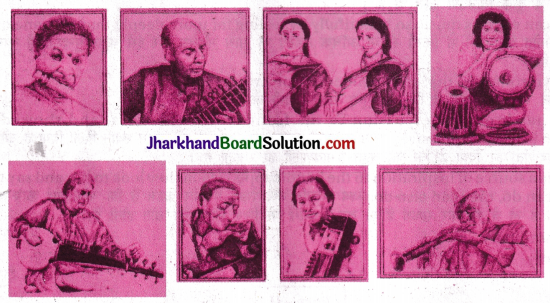
शहनाई के बारे में सोचिये तथा सम्भवतया आप सर्वप्रथम विवाह अथवा ऐसे ही किसी समारोह या उत्सव की कल्पना करेंगे । उसके पश्चात् शायद आप महान शहनाई वादक उस्ताद बिस्मिल्ला खान के विषय में सोचेंगे जो इस वाद्ययन्त्र को बजाते रहे हैं ।
Word-Meanings and Hindi Translation
1. EMPEROR Aurangzeb banned …………….. the shehnai (Pages 21-22)
Word-Meanings: emperor (एम्पॅरॅर्) = सम्राट, बादशाह | banned (बैन्ड् ) = officially prohibited, प्रतिबन्ध लगा दिया । playing on (प्लेइंग् ऑन) = वादन, बजाना । musical instrument (म्यूज़िकल इन्स्ट्रुमॅण्ट) = something that is used for playing music, संगीत यन्त्र | royal (रॉयल् ) = शाही, राजसी । residence (रेज़िडन्स् ) = निवास । for ( फॉर) = क्योंकि । shrill ( श्रिल) = high pitched and piercing, तीखी, कर्णभेदी । ‘unpleasant (अनूप्लेश्नॅण्ट् ) = अप्रिय । sound (साउण्ड्) ध्वनि ।
generic name ( जनेरिक् नेम्) = a name given to a class or group as a whole, सामान्य नाम, जातिगत नाम । reeded ( रीडिड्) = wind instruments which have reeds like the flute, the clarinet etc.; नरकुल से बने फूंक से बजने वाले वाद्ययन्त्र । noisemakers (नॉइज्मेकॅज़) = शोर करने वाले, तेज आवाज करने वाले । few (फ्यू) (here) none, किसी ने नहीं । thought (थॉट्) = considered, सोचा था । revived (रिवाइव्ड् ) = (here) would be popular again, पुनः लोकप्रिय हो जाएगी। barber (बाबॅर्) नाई, हज्जाम ।professional (प्रफेशनल्) = connected with a job, पेशेवर ।
musicians (म्यूज़िश्न्ज़) = persons who play musical instruments, संगीतकार । access ( ऐक्सेस) reach, पहुँच, पैठ । palace (पैलिस्) महल। decided (डिसाइडिड्) = निश्चय किया । improve (इम्प्रूव्) = गुण, लक्षण | chose = सुधारना । tonal (टोनल्) = regarding tone, स्वर सम्बन्धी । quality (क्वालिटि )_ (चोज़) = selected, चुना । pipe (पाइप् ) = नली, मुरली | natural ( नेचूल् = स्वाभाविक, प्राकृतिक । hollow ( हॉलो) = खोखला । stem (स्टेम्) = तना । longer and broader = ज्यादा लम्बा व ज्यादा चौड़ा । holes (होल्ज़) छिद्र । played (प्लेइड्) = made music, बजाया। closing (क्लोजिंग्) = बन्द करते हुए ।
opening (ओपनिंग ) खोलते हुए | soft (सॉफ्ट्) = not hard, मधुर । melodious (मलोड्यॅस्) = sweet, सुरीली । produced (ऍड्यूस्ड) = made something by a natural process, उत्पन्न हुई । royalty (रॉयल्ट) = family members of royal family, राजपरिवार | was impressed (वाज इम्प्रेस्ट् ) = प्रभावित हुआ । different (डिफॅरॅन्ट) as the story goes = as the story is popular, जैसी कि कहानी प्रचलित है। chambers (चेम्बर्स) = rooms, कक्ष, सदन ।
हिन्दी अनुवाद – बादशाह औरंगजेब ने शाही निवास ( राजमहल) में पुंगी नामक वाद्ययन्त्र के बजाने पर रोक लगा दी थी क्योंकि इसकी आवाज तीखी व अप्रिय थी । नरकुल ( सरकण्डे) से बने शोर मचाने वाले. (सभी वाद्ययन्त्रों) का जातिगत नाम पुंगी हो गया । किसी ने नहीं सोचा था कि एक दिन यह (पुंगी) लोकप्रिय हो जायेगी ।’ पेशेवर संगीतकारों के एक परिवार के नाई ने, जिसकी पहुँच शाही राजमहल तक थी, पुंगी के स्वर सम्बन्धी गुण को सुधारने का निश्चय किया ।
उसने प्राकृतिक खोखले तने वाले एक नरकुल (सरकण्डे) को चुना जो पुंगी से ज्यादा लम्बी व चौड़ी थी और उसने नरकुल पर सात छेद बना दिये । जब उसने इसके कुछ छेदों को बन्द करते हुए व खोलते हुए इसे बजाया तो मधुर और सुरीली ध्वनियाँ उत्पन्न हुईं । उसने इस वाद्य-यन्त्र को शाही परिवार के सामने बजाया और प्रत्येक व्यक्ति इससे प्रभावित हुआ । पुंगी से इतने भिन्न इस वाद्य यन्त्र को नया नाम देना था। जैसी कि कहानी प्रचलित है, चूँकि इसे सबसे पहले ‘शाह (बादशाह)’ के कक्ष में बजाया गया और उसको एक ‘नाई’ ने बजाया था (इसलिए) इस वाद्य यन्त्र का नाम ‘शहनाई’ रखा गया ।

2. The sound of the shehnai (Page 22)
Word Meanings: began to be considered=began to be granted, माना जाने लगा | auspicious (ऑस्पिशस् ) = promising to bring good fortune, शुभ, मांगलिक । reason ( रीज़न् ) = cause, कारण | still (स्टिल् ) = continue until now, अब तक । temples (टेम्पल्ज़्) मन्दिर । indispensable (इन्डिस्पेन्सबल्) = without which a piece of work cannot be done, बहुत आवश्यक, अपरिहार्य । component (कॅम्पोनण्ट) = one of the several parts, अंग, घटक |
wedding (वेडिंग् ) = विवाह, शादी | naubat = a group of nine musical instruments played in the royal court, शाही दरबार में बजाए जाने वाले नौ वाद्ययंत्रों का समूह। traditional (ट्रेडिशनल् ) = परम्परागत | ensemble (एन्सेम्ब्ल ) = things (here) group of musical instruments, वाद्ययन्त्र समूह । courts (कोस्) दरबार । recently (रीसॅन्ट्ल) = हाल ही में । credit (क्रेडिट् ) = the act of saying that somebody has done something well, श्रेय । for bringing = लाने का । onto the classical शास्त्रीय मंच पर ।
हिन्दी अनुवाद – शहनाई की ध्वनि को मांगलिक (शुभ) माना जाने लगा । और इसी कारण से इसे अब भी मन्दिरों में बजाया जाता है और यह किसी भी उत्तर भारतीय विवाह का बहुत ही आवश्यक अंग है। प्राचीनकाल में शहनाई ‘नौबत’ अर्थात् राजदरबार में पाये जाने वाले नौ वाद्ययन्त्रों के परम्परागत वाद्ययन्त्र समूह का एक अंग थी। अभी कुछ समय पूर्व तक इसका प्रयोग केवल मन्दिरों व विवाहों में ही किया जाता था । शास्त्रीय मंच पर इस वाद्य-यन्त्र को लाने का श्रेय उस्ताद बिस्मिल्ला खान को जाता है ।
3 – 4. As a five year old,……….. shehnai players. (Page 22)
Word-Meanings: pond (पॉण्ड्) = तालाब | ancient (एन्शन्ट् ) = प्राचीन | estate (एस्टेट् ) = जागीर । regularly (रेग्युलरर्लि) नियमित रूप से | nearby (निअ: बाइ) : निकटस्थ | earn (अर्न्) weighing (वेइंग्) = तोल का, वजनी । prize (प्राइज़) = पुरस्कार। local (लोकल्) स्थानीय | happened (हैपन्ड्) होता था । highest (हाइएस्ट्) सर्वोच्च । civilian award (सिविलियन् अवार्ड) नागरिक सम्मान । belongs to ( बिलॉग्ज़ टु) से सम्बन्ध रखते हैं । well-known (वेल – नोन् ) = प्रसिद्ध, प्रतिष्ठित । paternal (पॅटॅ:नॅल) = पैतृक । ancestors (ऐन्सेस्टर्ज़) = पूर्वज । paternal ancestors= ancestors of the father, पिता के पूर्वज ।
हिन्दी अनुवाद – पाँच वर्षीय बालक के रूप में बिस्मिल्ला खाने बिहार में डुमराँव की प्राचीन जागीर में एक तालाब के निकट गिल्ली-डण्डा खेला करते थे । नियमित रूप से निकटस्थ बिहारीजी के मन्दिर में भोजपुरी ‘चैता’ (भोजपुर क्षेत्र में ईश्वरीय प्रार्थना के रूप में गाया जाने वाला गीत) गाने के लिए जाते थे और इसकी समाप्ति पर उनको सवा किलो (1.25 किग्रा) वजन का एक बड़ा लड्डू प्राप्त होता था जो स्थानीय महाराजा के द्वारा दिया गया इनाम होता था ।
यह सब 80 वर्ष पहले होता था और इस छोटे लड़के ने भारत के सर्वोच्च नागरिक पुरस्कार ‘भारतरत्न’ को प्राप्त करने के लिए बहुत लम्बी यात्रा की है । 21 मार्च, 1916 को जन्मे बिस्मिल्ला खान बिहार में संगीतकारों के एक प्रसिद्ध परिवार से सम्बन्ध रखते हैं । उनके दादाजी, रसूल बख्श खान भोजपुर के राज दरबार के शहनाई – नवाज थे । उनके पिता पैगम्बर बख्श और उनके अन्य पूर्वज भी महान शहनाई वादक थे ।
5. The young boy. the range of the shehnai. (Page 23)
Word-Meanings: took to (टुक् टु) = started liking, पसन्द करने लगा, में लग गया।maternal uncle = मामा। fascinated (फेसिनेटिड् ) = attracted, मोहित हुए, मन्त्र-मुग्ध हुए । watching (वॉचिंग) देखकर | practise (प्रैक्टिस् ) = अभ्यास करते हुए । accompanying (ॲकॅम्पॅनिइंग) = साथ जाना! employed (इम्प्लॉइंड् ) = नियुक्त थे । captivated (कैप्टिवेटिड् ) = charmed, मोहित, मंत्र-मुग्ध | on end (ऑन् एण्ड्) for a very long time without stopping, लगातार, काफी देर तक ।
slowly ( स्लोलि ) धीरे-धीरे । throughout the day (थ्रूआउट द डे ) = दिनभर । banks (बैंक्स्) = तट, किनारे | apprentice (अप्रेन्टिस् ) learner, नौसिखिया, प्रशिक्षु । favourite haunts (फेवरिट हॉन्ट्स) = places that somebody visits often or where somebody spends a lot of time, पसंदीदा बसेरे । solitude (सॉलिट्यूड्) एकान्त, एकाकीपन । flowing (फ्लोइंग्) = बहता हुआ । inspired (इन्स्पायर्ड) = प्रेरित करता था। improvise (इम्प्रॅवाइज़) = to play music using his imagination, अपनी कल्पना का प्रयोग करते हुए संगीत रचना करना । invent (इन्वेन्ट् ) create, आविष्कार करना, गढ़ना । raagas (रागाज़ू) = pattern of notes in Indian music, राग । earlier (अॅलियर्) इससे पूर्व । considered (कॅन्सिडर्स्) = माना जाता था । beyond (बियॉण्ड् ) = परे, बाहर | range (रेन्ज्) = area, सीमा, श्रेणी |
हिन्दी अनुवाद – यह छोटा लड़का (बिस्मिल्ला खान ) जीवन के प्रारम्भ से ही संगीत में लग गया । तीन वर्ष की उम्र में जब उसकी माँ उसे उसके मामा के घर बनारस (अब वाराणसी) ले गई तो बिस्मिल्ला अपने मामाओं को शहनाई का अभ्यास करते हुए देखकर मोहित हो गये । शीघ्र ही बिस्मिल्ला ने अपने मामा, अली बख्श के साथ बनारस के विष्णु मन्दिर में जाना शुरू कर दिया जहाँ बख्श को शहनाई बजाने के लिए नियुक्त किया गया था। अली बख्श शहनाई बजाया करते और बिस्मिल्ला घण्टों तक लगातार मन्त्र-मुग्ध होकर बैठे रहते ।
धीरे-धीरे उन्होंने वाद्ययन्त्र को बजाने की शिक्षा लेना शुरू कर दिया और वह पूरे दिन बैठकर अभ्यास करते रहते । आने वाले वर्षों में बालाजी और मंगला मैया के मन्दिर तथा गंगा नदी का किनारा इस युवा प्रशिक्षु के सर्वाधिक प्रिय अड्डे ( बसेरे) बन गये जहाँ वह एकान्त में बैठकर अभ्यास कर सकते थे । गंगा का बहता हुआ जल उनको उन नये रागों की तत्काल रचना करने व आविष्कार करने की प्रेरणा देता जो पहले शहनाई की सीमा से बाहर के माने जाते थे ।

6-7. At the age of 14, ………… “Tryst with Destiny’ speech. (Page 23)
Word Meaning: accompanied (अॅकॅम्पनीड्) = went in the company of, साथ गया । recital (रिसाइटॅल) = performance of the music, संगीत प्रस्तुति । patted (पैटिड् ) = थपथपाया । shall make it = will get success, सफलता मिलेगी। opening (ओपनिंग ) शुरूआत । big break ( बिग ब्रेक् ) = a piece of good luck, अनुकूल अवसर, सौभाग्य । often heard (ऑफॅन हर्ड) = heard occasionally, अक्सर सुना जाने वाला ।
player (प्लेयर्) = (here) singer of shehnai, शहनाई वादक अर्थात शहनाई बजाने वाला संगीतकार । gained (गेइन्ड्) = got, प्राप्त किया । independence (इन्डिपॅन्डॅन्स्) = स्वतन्त्रता | greet (ग्रीट् ) = to welcome, अभिवादन करना | nation ( नेशन्) राष्ट्र । poured out (पोई आउट) = gave out, उड़ेल दिया । heart (हार्ट्) = हृदय । audience (ऑडिअन्स्) = peaple who hear attentively, श्रोतागण । included (इन्क्लुडिड्) = शामिल था । famous (फेमस् ) = प्रसिद्ध । ‘Tryst with Destiny’ speech = meeting with fate speech, ‘भाग्य से भेंट’ नामक भाषण ।
हिन्दी अनुवाद – चौदह वर्ष की आयु में बिस्मिल्ला अपने मामा के साथ इलाहाबाद संगीत सम्मेलन में गये । उनकी संगीत प्रस्तुति की समाप्ति पर उस्ताद फैयाज खान ने इस छोटे बालक की पीठ थपथपाई और कहा, “परिश्रम करो और तुम्हें सफलता मिलेगी ।” वर्ष 1938 में लखनऊ में ऑल इण्डिया रेडियो के शुरू होने पर बिस्मिल्ला को एक बड़ा अनुकूल अवसर अर्थात् सौभाग्य लाने वाला अवसर मिला । वे शीघ्र ही रेडियो पर अक्सर सुने जाने वाले शहनाईवादक बन गये । जब 15 अगस्त, 1947 को भारत को स्वतन्त्रता प्राप्त हुई तो बिस्मिल्ला खान शहनाई से राष्ट्र का अभिवादन करने वाले प्रथम भारतीय बने । उन्होंने लाल किले से ‘राग काफी’ में अपना हृदय उन श्रोताओं के समक्ष उड़ेल दिया जिनमें पण्डित जवाहरलाल नेहरू भी शामिल थे, जिन्होंने बाद में अपना ‘भाग्य से भेंट’ नामक प्रसिद्ध भाषण दिया ।
8. Bismillah Khan has he says with emphasis. (Pages 23-24)
Word Meanings: memorable ( मेमल् ) = स्मरणीय । performances (पॅ: फॉ: मन्सिज्) = act of performance before the audience, प्रदर्शन, प्रस्तुतियाँ | abroad (अॅब्रॉड) = in a foreign land, विदेश में । trip abroad (ट्रिप अॅब्रॉड ) = विदेश यात्रा | taken in by ( टेकन इन बाइ) = attracted or charmed by से मोहित, से आकर्षित maestro ( माइस्ट्रो) = expert in music, संगीताचार्य, महान संगीतकार gifted (गिफ्टिड् ) = gave presents, उपहार दिये । priceless (प्राइसलस्) अमूल्य । carpets (का: पिट्स्) = गलीचे । souvenirs (सूर्वेनिॲर्ज़) = things given in memory of a place, person or event, स्मृति चिह्न ।
impressed (इम्प्रेस्ट्) = attracted, प्रभावित | festival (फेस्टिवॅल्) = उत्सव । named (नेम्ड्) = नाम रखा । hit (हिट् ) = successful, सफल। composition (कॉम्पॅजिशॅन् ) = musical creation, रचना, कृति । turned out (टॅन्ड् आउट्) proved, सिद्ध हुआ। chartbuster (चास्टर् ) = record breaker, कीर्तिमान तोड़ने वाला । despite (डिस्पाइट् ) के बावजूद |
huge (ह्यूज् ) = विशाल । success (सक्सेज) = सफलता । celluloid world (सेल्युलॉयड वॅल्ड्) = old fashioned way of referring to films, फिल्मी दुनिया, चलचित्र लोक । ventures (वेन्वर्जू) = projects that are new and often involve risk, जोखिम का कार्य, उद्यम । limited (लिमिटिड् ) = सीमित । come to terms (कॅम टु टॅम्ज़) = accept something unpleasant, अप्रिय वस्तु से समझौता करना या उसे स्वीकार करना । artificiality (आटिफिलिटि ) कृत्रिमता, बनावटीपन । glamour ( ग्लैमर् ) attraction, मोहकता | with emphasis (विद एम्फॅसिस् ) = with force, जोर देकर।
हिन्दी अनुवाद- बिस्मिल्ला खान ने भारत व विदेश दोनों ही स्थानों पर अनेक स्मरणीय प्रस्तुतियाँ दीं । उनकी प्रथम विदेश यात्रा अफगानिस्तान की थी जहाँ राजा जहीर शाह इस महान संगीतकार से इतने आकर्षित हुए कि उन्होंने उनको अमूल्य फारसी गलीचे व अन्य स्मृति चिह्न उपहार में दिये । अफगानिस्तान के राजा ही बिस्मिल्ला के संगीत से मोहित होने वाले एकमात्र व्यक्ति नहीं थे ।
फिल्म निर्देशक विजय भट्ट बिस्मिल्ला के वादन को एक उत्सव में सुनने के बाद इतने प्रभावित हुए कि उन्होंने एक फिल्म का नाम वाद्ययन्त्र के नाम पर ही ‘गूँज उठी शहनाई’ रख दिया । फिल्म हिट ( सफल ) रही तथा बिस्मिल्ला खान की रचनाओं में से एक रचना ‘दिल का खिलौना हाय टूट गया…’, पूरे राष्ट्र में कीर्तिमान अर्थात् रिकार्ड तोड़ने वाला सिद्ध हुआ ! फिल्मी जगत में इस अपार सफलता के बावजूद बिस्मिल्ला खान का उद्यम फिल्मी संगीत में केवल दो फिल्मों तक ही सीमित रहा विजय भट्ट की ‘गूँज उठी शहनाई’ और विक्रम श्रीनिवास की कन्नड़ फिल्म ‘सनधि अपन्ना’। “मैं फिल्मी जगत की कृत्रिमता तथा मोहकता से समझौता नहीं कर सकता”, वे जोर देकर कहते हैं ।
9. Awards and recognition……. Bismillah Khan. (Page 24)
Word Meaning: recognition ( रेकॅग्निशॅन् ) = respect, मान्यता, सम्मान | thick and fast (थिक् एण्ड फास्ट् ) = quickly and in large quantities, तेजी से व बड़ी संख्या में । was invited (वाज इन्वाइटिड्) – आमन्त्रित किया गया। perform (प: फॉम्) = to take part to sing before an audience प्रदर्शन करना । prestigious (प्रेस्टिजस् ) = famous, प्रतिष्ठित । took part (टुक पाट) = भाग लिया । exposition ( एक्सपॅज़िशॅन् ) = a large public exhibition, प्रदर्शनी । Trade Fair (ट्रेड् फेअर् ) = व्यापार मेला | well-known (वेल्-नोनू) famous, प्रसिद्ध । internationally (इन्टर्नेशनॅलि) = अन्तर्राष्ट्रीय रूप से । auditorium (ऑडिटोरियम्) hall for meeting, सभा भवन, प्रेक्षागृह ।
हिन्दी अनुवाद – पुरस्कार और सम्मान बहुत अधिक संख्या में और तेजी से प्राप्त हुए । बिस्मिल्ला खान संयुक्त राज्य अमेरिका के प्रतिष्ठित लिंकन सेन्टर हॉल में प्रस्तुति देने के लिए आमंत्रित किए जाने वाले पहले भारतीय थे । उन्होंने मॉण्ट्रियल में ‘विश्व प्रदर्शनी’, ‘कान्स कला उत्सव’ व ‘ओसाका व्यापार मेले’ में भी भाग लिया । वे अन्तर्राष्ट्रीय रूप से इतने प्रसिद्ध हो गये कि तेहरान में एक सभा भवन का नाम ही उनके नाम पर ‘ताहर मौसिकी उस्ताद बिस्मिल्ला खान’ रख दिया गया ।
10-11. National awards ………… learn our music.” (Page 24)
Word-Meanings: National awards ( नेश्नल् अवाड्ज़) = prizes of the nation, राष्ट्रीय पुरस्कारों । were conferred (वर कन्फर्ड) = were given (awards ), ( पुरस्कार) प्रदान किये गये। civilian award (सविलिअन् अवाड्) = a prize given to a civilian, नागरिक को दिया जाने वाला सम्मान । coveted (कवटिड्) = much desired, लालसा के योग्य । resting (रेस्टिंग् ) = keeping, रखे हुए। his eyes glinting with = filling his eyes with tears of happiness, अपनी आँखों में (प्रसन्नता के) आँसू भरते हुए | rare (रेअर् ) = uncommon, असाधारण । happiness (हैपिनस्) = प्रसन्नता । richest ( रिचॅस्ट) = most prosperous, समृद्धतम। tradition ( ट्रडिशन् ) = custom, परम्परा ।
हिन्दी अनुवाद – पद्मश्री, पद्मभूषण व पद्मविभूषण जैसे राष्ट्रीय पुरस्कार उन्हें प्रदान किये गये थे । वर्ष 2001 में बिस्मिल्ला खान को भारत का सर्वोच्च नागरिक पुरस्कार ‘भारत रत्न’ प्रदान किया गया। किसी के लिए भी लालसा के योग्य इस पुरस्कार को अपने वक्षस्थल पर रखे हुए और असाधारण प्रसन्नता से अपनी आँखों में आँसू भरते हुए उन्होंने कहा, “जो कुछ मैं कहना चाहता हूँ वह यह है :- अपने बच्चों को संगीत सिखाइये, यह हिन्दुस्तान की समृद्धतम परम्परा है; यहाँ तक कि पश्चिम भी अर्थात् पश्चिमी देश भी अब हमारा संगीत सीखने आ रहे हैं । ”
12. In spite of ………… (Readers’ Digest, Oct. 2005) (Pages 24-25)
word-Meanings in spite of (इन स्पाईट ऑव ) = despite, के बावजूद । fondly (फॉन्ड्ल) = with love, प्रेमपूर्वक । exceedingly (इक्सीडिंगलि ) = very much, अत्यधिक, अत्यन्त । fond of (फॉण्ड् ऑव्) having an affection for लगाव, स्नेह । remain (रिमेन्) = बने रहना, रहना । wonderful (वन्डफ्ल) fantastic, अद्भुत, आश्चर्यजनक | to head (टु हैड् ) = to lead नेतृत्व करना, प्रमुख बनना । promised (प्रॉमिस्ट् ) वायदा किया। recreate (रिक्रिएट्) = to create again, पुनः रचना, करना, पुनः उत्पन्न करना । atmosphere (ऐट्मॅस्फिॲर्) वातावरण | by replicating (बाइ रेप्लिकेटिंग) = by copying, हूबहू नकल करते हुए |
able (एबॅल) = समर्थ । transport (ट्रैन्स्पॉट् ) = to bring, ले जाना । as well ( एज़ वेल् ) = also, भी । whenever (वेनेवर्) = जब-जब, जब कभी । foreign (फॉरन् ) = विदेशी | country (कन्ट्रि ) = देश | remember (रिमेम्बर) = याद करना Ayearning (यॅनिंग्) = intense longing, लालसा, ललक । holy (होलि ) = pious, पवित्र। miss (मिस्) = feel the lack of अभाव महसूस करना । unique (यूनीक्) matchless, अनोखा, अद्वितीय । partition (पा:टिशॅन्) = विभाजन i happened (हैपन्ड् ) = हुआ, घटित हुआ। God forbid ! (spoken) = used to say that you hope that something will not happen, ईश्वर ऐसा न करे, अल्लाह खैर करे । leave ( लीव्) छोड़ना । crossed (क्रॉस्ट्) = पार किया | border (बॉर्डर् ) सीमा ।
हिन्दी अनुवाद – सारे संसार में यात्रा कर चुकने के बावजूद खान साहब, जैसा कि उन्हें प्यार से कहा जाता है – बनारस व डुमराँव से अत्यधिक लगाव रखते हैं और वे उनके लिए संसार के सर्वाधिक अद्भुत नगर हैं । उनका एक शिष्य एक बार उनसे चाहता था कि वे यू. एस. ए. में एक शहनाई स्कूल के प्रधान बनें और उस शिष्य ने यह वायदा भी किया कि वह वहाँ बनारस के मन्दिरों की हूबहू प्रतिकृतियाँ बनवांकर बनारस का वातावरण बना देगा । किन्तु खान साहब ने उससे पूछा कि क्या वह वहाँ गंगा नदी को भी लाने में समर्थ होगा ।
बाद में ऐसा याद किया जाता है कि उन्होंने कहा था, “यही कारण है कि जब कभी मैं विदेश में होता हूँ तो हिन्दुस्तान को देखने की लालसा मुझे बनी रहती है । जब मैं मुम्बई में होता हूँ तो मैं केवल बनारस और पवित्र गंगा के बारे में सोचता हूँ। और जब बनारस में होता हूँ तो मैं डुमराँव के अनोखे मट्ठे का अभाव महसूस करता हूँ ।”
शेखर गुप्ता — जब विभाजन हुआ तो क्या आपने और आपके परिवार ने पाकिस्तान जाने के बारे में नहीं सोचा ?
बिस्मिल्ला खान — अल्लाह खैर करे । मैं, और बनारस छोडूं ? कभी नहीं मैं एक बार पाकिस्तान गया था
बिस्मिल्ला खान — मैंने सीमा को पार किया केवल यह कहने के लिए कि मैं पाकिस्तान गया हूँ। मैं वहाँ लगभग एक घण्टे रहा । मैंने पाकिस्तानियों से ‘नमस्कार’ कहा और भारतीयों से ‘सलाम आलेकुम्’ कहा ! मैं खूब हँसा ।
( रीडर्स डाइजेस्ट, अक्टूबर 2005 )

13. Ustad Bismillah …………… national mourning (Page 25)
Word-Meanings: perfect (पॅ: फिक्ट्) = ideal, आदर्श, श्रेष्ठ । example (इग्ज़ाम्पॅल्) = उदाहरण। rich (रिच्) = prosperous, समृद्ध | cultural (कल्चॅरॅलू) = of the culture, सांस्कृतिक । heritage (हेरिटिज्) things or culture that you get from your forefathers, विरासत, पैतृक सम्पत्ति | effortlessly (एफॅट्लस्लि) = without any effort, सहजता से, अनायास ही । accepts (अॅक्सेप्ट्स) = agrees, स्वीकार करता हैं ।
devout (डिवोउट् ) = believing strongly in a religion and obeying its laws and following its practices, भक्त, धर्मपरायण । naturally (नैचुरैलि) = in a normal way, स्वाभाविक ढंग से, सहजता से । passed away (पास्ट अवे ) = died, देहान्त हो गया । prolonged (प्रॅलॉगूड् ) = long, लम्बी, दीर्घ । illness ( इल्नस् ) = बीमारी । was given a state funeral (वाज गिविन स्टेट् फ्यूनरल् ) = was respected by the Govt. of India even in his ritual of burying the dead body, राजकीय सम्मान के साथ उन्हें दफन किया गया । declared (डिक्लेअर्स्) announced, घोषणा की । national mourning (नेशॅनॅल् मो:निंग्) = mourning by the whole nation, राष्ट्रीय शोक।
हिन्दी अनुवाद – उस्ताद बिस्मिल्ला खान का जीवन भारत की समृद्ध सांस्कृतिक विरासत का श्रेष्ठ उदाहरण है,. एक ऐसा उदाहरण जो सहजता से यह स्वीकार करता है कि उनके जैसा धर्मपरायण मुसलमान प्रत्येक सुबह काशी के विश्वनाथ मन्दिर में स्वाभाविक रूप से शहनाई बजा सकता है । (उस्ताद बिस्मिल्ला खान लम्बी बीमारी के बाद 90 वर्ष की आयु में 21 अगस्त, 2006 को परलोक सिधार गये । उनकी राजकीय सम्मान के साथ अन्त्येष्टि की गई और भारत सरकार ने एक दिन का राष्ट्रीय शोक घोषित किया ।)


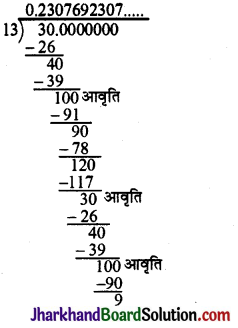


![]()
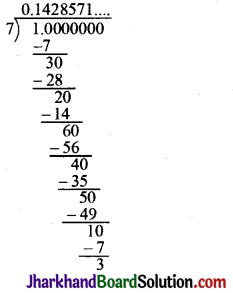
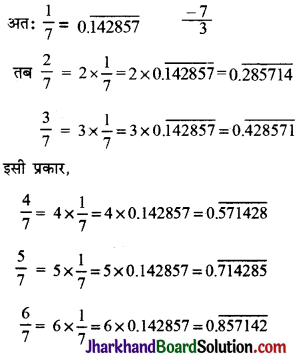
![]()
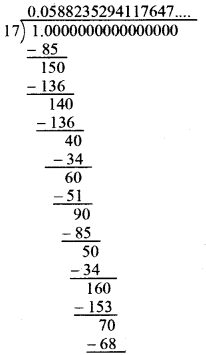
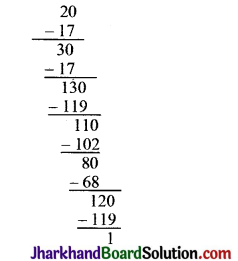
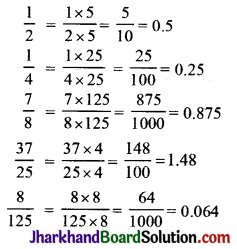

![]()
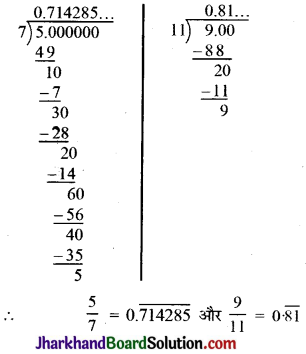
![]()



